Hello and welcome to Work Week, the podcast where we discuss one big question about the rapidly changing workplace, explore relevant research about the topic, and explain what it all means for you.
I’m Dr. Kelly Monahan, Managing Director at The Upwork Research Institute. What you’re hearing is a digital proxy of my voice created by our team with the help of AI.
Our big question for this week is: What is an AI generalist — and why does your business need one?
Now, if the idea of an AI generalist is new to you, you’re not alone.
At The Upwork Research Institute, we’ve been tracking how job categories are changing in the wake of rapid AI adoption. And one of the most fascinating patterns we’ve seen is the emergence of a hybrid worker — one who blends technical literacy in AI with irreplaceable human strengths like creativity, strategy, communication, and systems thinking.
In this week’s episode, we’ll cover what makes AI generalists so valuable, what the data says about this emerging profile, and how both business leaders and workers can start building toward this future-ready skill set.
Let’s start by defining some terms.
The AI generalist is the translator between business needs and AI capabilities. They understand the organization’s strategy and how AI can support it. They’re part strategist, part communicator, part problem-solver. And crucially, they’re creative.
Businesses have long relied on generalists to keep their operations functioning. Traditionally, generalists have worn many hats and performed many roles, which have often been codified in their job descriptions. For example, an HR generalist may handle hiring, onboarding, training, and payroll, whereas a recruitment manager only focuses on hiring.
Rather than focusing on a single domain, a generalist works across disciplines, spotting connections and integrating knowledge.
The AI generalist takes this broad view and adds to it a working understanding of how to use AI tools, engineer prompts, and evaluate models. And they’re changing how work gets done.
At Upwork, we’re continually looking at how freelance talent, job postings, and skills are shifting in real time. And our recent research, titled AI Trends on the World’s Work Marketplace: How AI Is Reshaping the Way Humans Work, reveals a powerful insight. The most future-proof roles are not those that escape AI entirely, but those that are being reshaped in tandem with AI technology.
Let’s walk through a few key takeaways from the research.
First, AI isn’t replacing jobs — it’s redefining them.
One of the biggest misconceptions leaders have is that adopting AI is about replacing the workforce. But our data shows that AI is augmenting work far more than it’s automating it outright.
In fact, in high-skill categories like web, mobile, and software development, AI hasn’t diminished demand — it’s changed demand.
Today’s clients and organizations are looking for more than a traditional software engineer. Demand for work that creates repetitive code has decreased because of the availability of large language models and agents like Anthropic’s Claude and OpenAI’s Codex.
However, companies do want and need developers who can use AI tools to write better code faster. Organizations are also looking for developers and engineers who apply business logic and critical thinking to design solutions, and communicate clearly about what AI can and can’t do.
The ability to navigate these disparate demands while using artificial intelligence is the hallmark of an AI generalist. And it’s reshaping how software work gets done.
The second takeaway from our recent research is that the talent premium is already here.
Upwork platform data shows that freelancers whose roles involve coding for at least twenty-five percent of their work are earning eleven percent more than they did in November twenty twenty-two, when ChatGPT launched.
That’s a significant jump in less than two years — and it reflects the rising demand for workers who can blend technical and human skills in the context of AI.
What’s particularly noteworthy is why these workers are commanding higher rates.
Clients today want to work with people who can do more than simply crank out code — clients want someone who understands:
- How to work with AI copilots
- When to trust the model — and when not to
- How to integrate AI into broader systems
- And how to explain it all to stakeholders
In short, they want to work with AI generalists. The skill set goes beyond coding — it requires knowing how AI fits into the bigger picture.
The third takeaway from our research is that even job categories that aren’t directly being affected by AI automation are changing fast.
Take project management, marketing, or customer research. These are all roles that still rely heavily on human intuition, creativity, and communication. But even here, the skill sets are shifting.
Project managers now need to understand how AI affects timelines, workflows, and risk management.
Marketers are learning prompt engineering to create AI-generated campaign concepts.
Researchers are using AI to parse customer feedback at scale — but still need to design the right questions.
Based on Upwork platform data, we’re seeing a broad upskilling trend across nearly every job family. Those who can integrate AI tools into human-centered work — the AI generalists — are pulling ahead.
If you’re a manager, team leader, or executive, you might be asking what you can do now to prepare for this fast-approaching future of work.
Let me offer a few starting points.
First, stop hiring for yesterday’s skills.
Organizations need to let go of outdated mental models and job descriptions for roles like “data analyst,” “copywriter,” or even “developer.” Traditional job requirements often obscure the real work being done today, which increasingly involves navigating AI-infused tasks.
Instead, look for skills such as prompt engineering, AI tool fluency, curiosity and willingness to learn, and cross-functional communication.
In interviews, ask candidates how they’ve used AI to do their work better. Look for signs of experimentation, adaptation, and strategic thinking.
Second, build internal talent pathways.
You don’t have to look outside your organization to find AI generalists — you can grow them.
Create training and talent development tracks that combine basic AI literacy, ethical frameworks and decision-making, and soft skills development. Explore use cases by identifying what’s possible with today’s tools.
Technical training shouldn’t live in your IT department. Training belongs in human resources, learning and development, and across every business function. The future of your workforce depends on it.
Third, engage AI-savvy freelancers to scale core teams.
One of the most agile ways to access AI generalist skills is through freelance talent. Upwork customer insights show that freelancers are using AI for augmentation seventy-one percent of the time versus automation twenty-nine percent of the time. This means they’re not replacing tasks wholesale — they’re enhancing their abilities and moving into higher-level, more strategic work.
As AI takes over execution-level tasks, freelancers are upskilling into roles that require creativity, business logic, data interpretation, and content strategy. They're leading projects like designing complex research studies, developing AI-enhanced content roadmaps, and driving creative direction with AI as a co-pilot.
This offers a huge opportunity for businesses. By integrating freelancers with AI skills into your workflows, you can enable new ways of working that your existing in-house teams can learn from and build on.
Fourth, encourage cross-team collaboration.
The best AI generalists are curious people who love connecting dots. You can nurture this by rotating employees across teams or functions, hosting “AI application” hackathons, and encouraging freelancers and full-time staff to collaborate on innovation projects.
Give people opportunities to step outside their job silos and apply AI tools to real business problems. That’s how generalist thinking gets built.
Now, what does this shift mean for workers?
Let’s take a look at the rise in AI generalists from the worker perspective. If you’re an individual worker — freelancer, employee, or someone exploring new career paths — what does all this mean for you?
First, here’s the good news: You don’t need to be a machine-learning expert to thrive in the age of AI.
But you do need to be technically literate, strategically minded, adaptable, and proficient in uniquely human skills.
In short, you need to build your AI generalist muscle.
No matter your role, you can do this in a few simple steps.
First, learn how to prompt. Start experimenting with tools like Claude or ChatGPT. Explore what makes a good prompt versus a bad one. This is the new digital literacy.
Second, practice decision-making with AI. Try summarizing a complex article or brainstorming a new idea using AI — then compare the result with your own instincts. What did the AI miss? What surprised you?
Third, blend domains. If you’re a writer, learn basic data analytics. If you’re a developer, study UX. If you’re in HR, try designing a hiring prompt for AI. Look for unexpected intersections and ways to use AI tools to pick up new skills relevant to your current role.
Finally, build your portfolio. Whether you freelance or work in-house, start documenting how you use AI to improve outcomes. Show before-and-after comparisons. This becomes proof of your value in this new world of work.
Becoming an AI generalist isn’t about mastering one tool. It’s about becoming the kind of person who is adaptable and can work with any tool to solve meaningful problems.
Let’s wrap, as we always do, with one action item for leaders and one for workers — and then a question to reflect on as you think about the future.
As a business leader or manager, identify one role in your organization that could benefit from AI generalist capabilities. Redesign the job description to reflect the blend of AI literacy and human judgment it currently requires. Then, pilot a development track or hiring strategy specifically aimed at sourcing or growing talent for that revised role. It could be a project manager who knows how to prompt, a marketer who can leverage generative tools, or a developer skilled in both code and communication.
Start with one role or team. Track the impact. Then scale what works.
As an individual worker, pick one uniquely human skill you already have — and layer in an AI tool to enhance the skill this week. For example, if you’re great at writing, try using AI to draft faster or iterate on tone. If you’re analytical, use an AI assistant to summarize datasets or visualize insights. If you’re creative, co-design a product idea or campaign with an AI partner.
The key here is practice. Build your muscle memory and confidence by integrating AI into the work you already do well.
And now, for this week’s reflection question.
Are you building a team — or a career — that’s adapting to maximize business outcomes using AI, or one that risks being left behind by AI?
We’re not talking about being tech experts. We’re talking about being adaptable, integrative thinkers who can harness tools to do strategic and creative work even better. That’s the power of the AI generalist.
Thank you for tuning in to this episode of Work Week. I’m Kelly Monahan and if this episode challenged your thinking or gave you a new perspective, share it with a colleague, drop us a review, and don’t forget to subscribe.







.png)
.png)
.png)
.png)
.png)
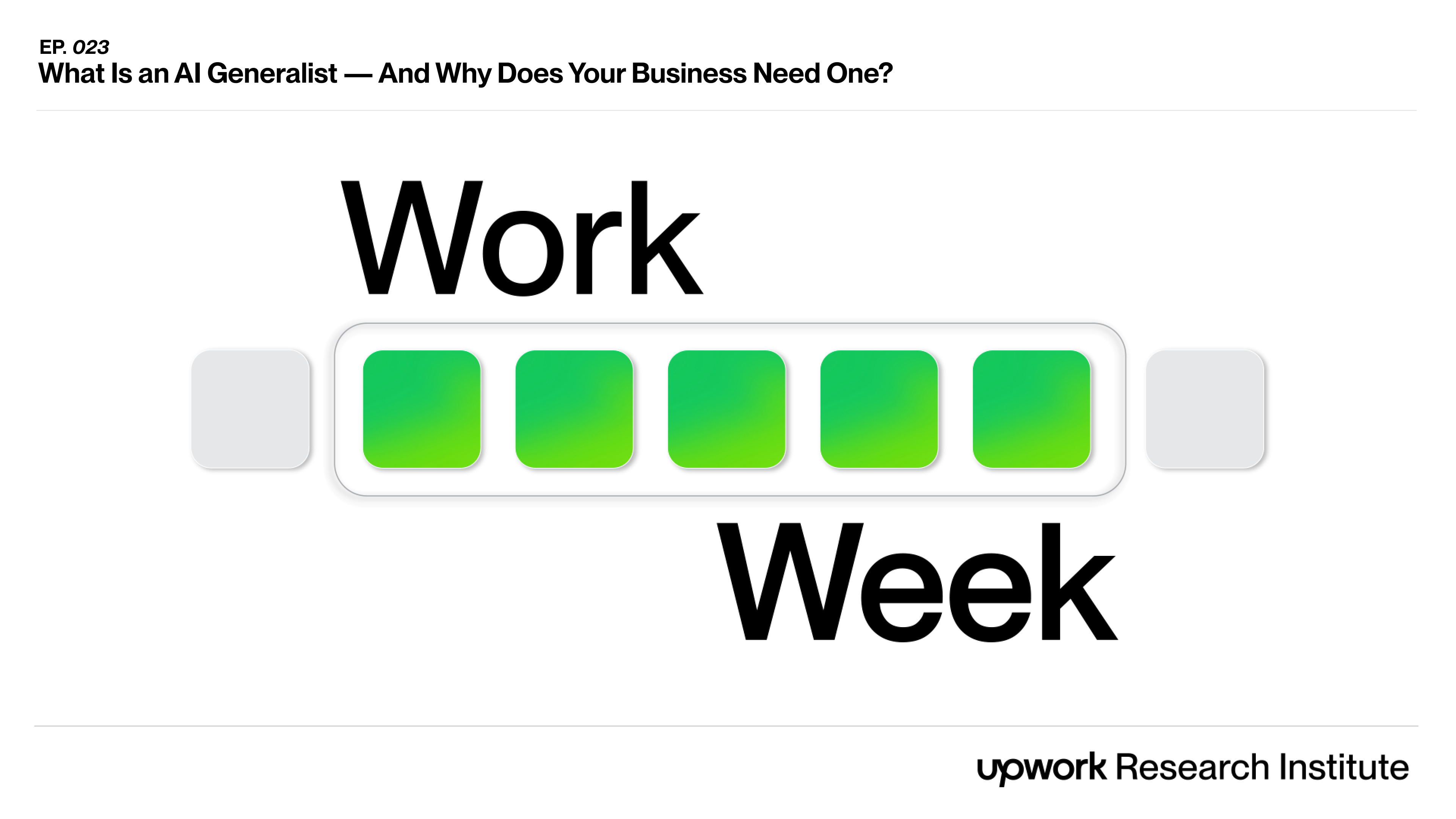


.png)

-p-500.jpg.png)

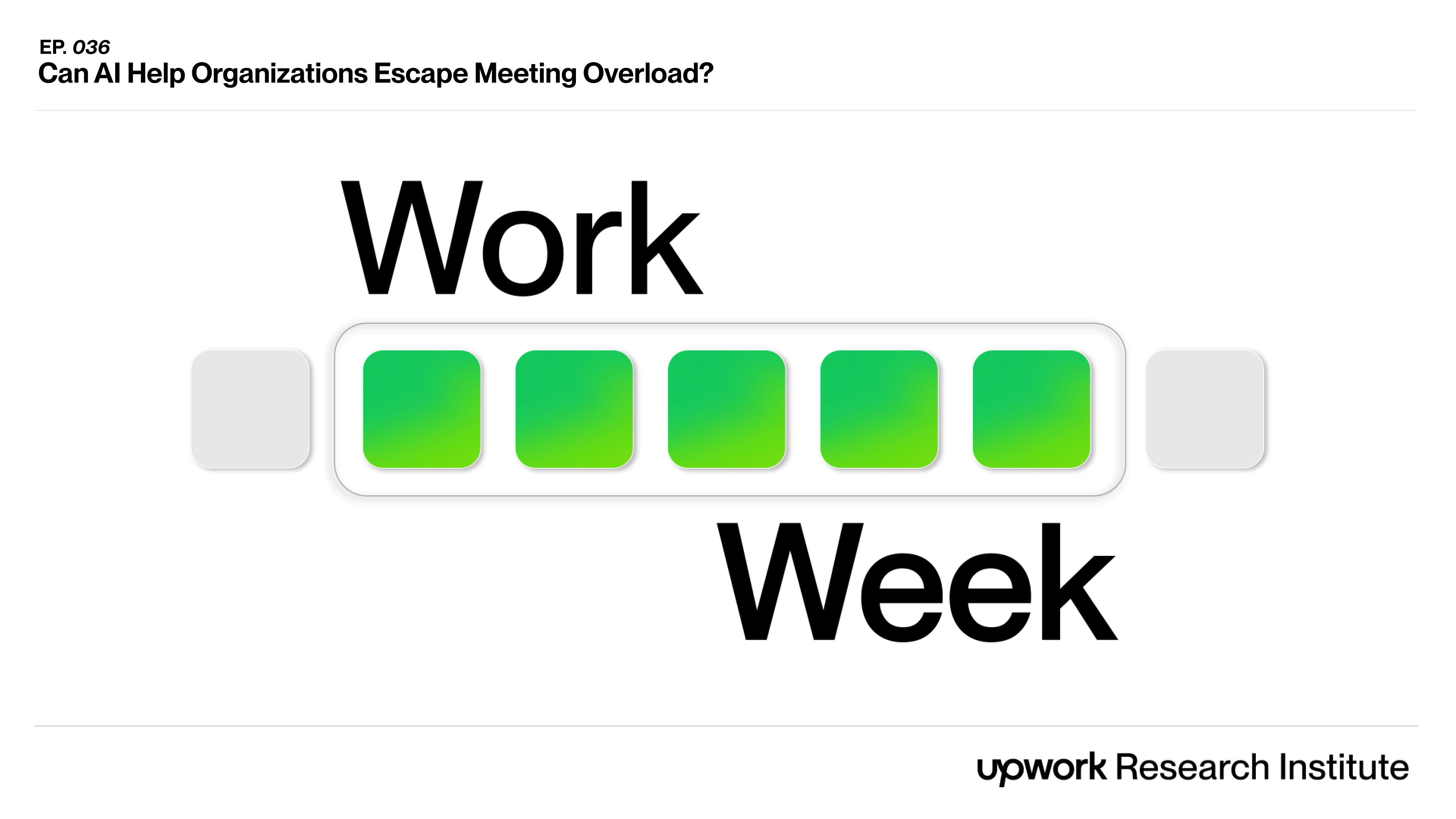

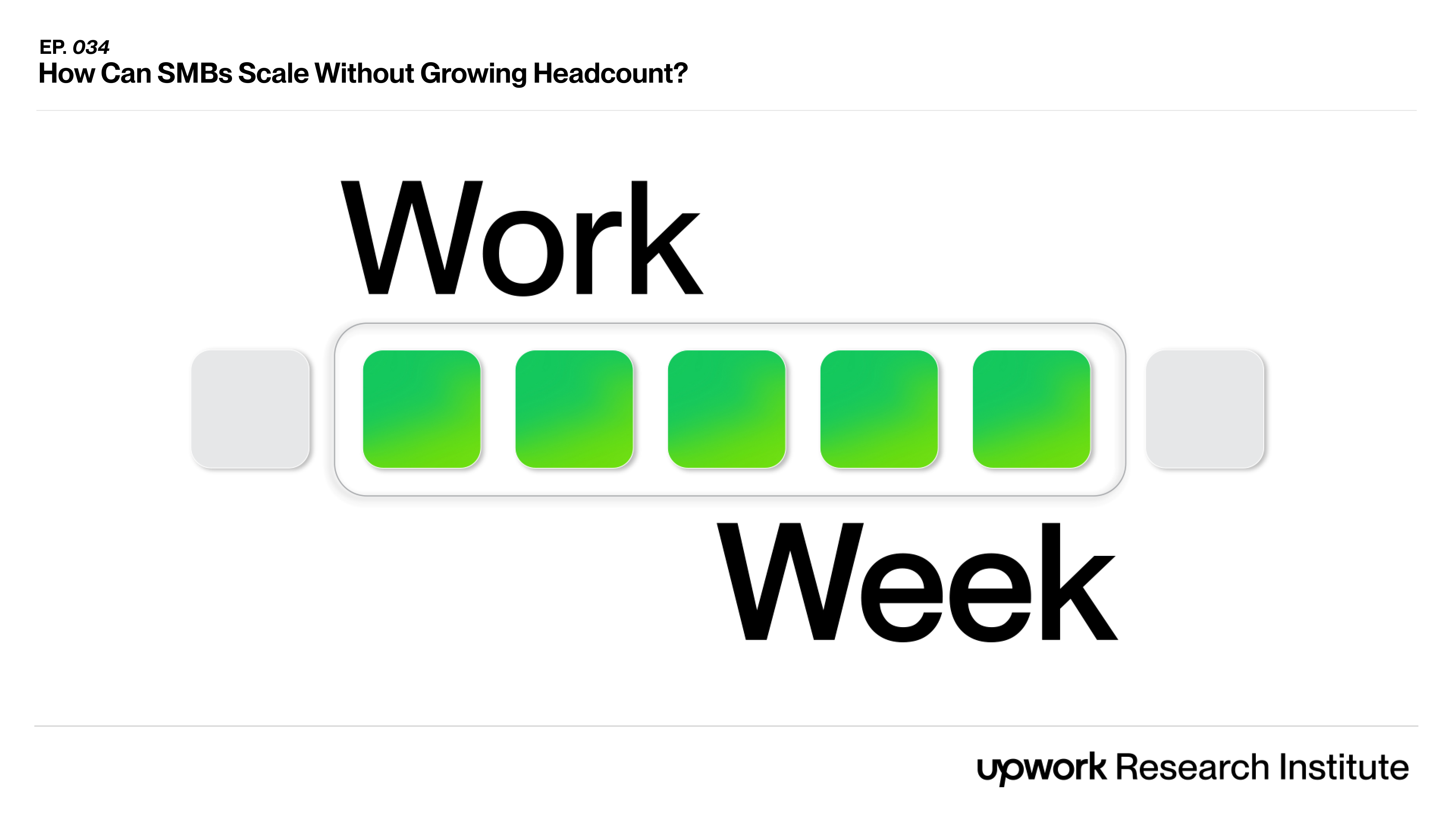
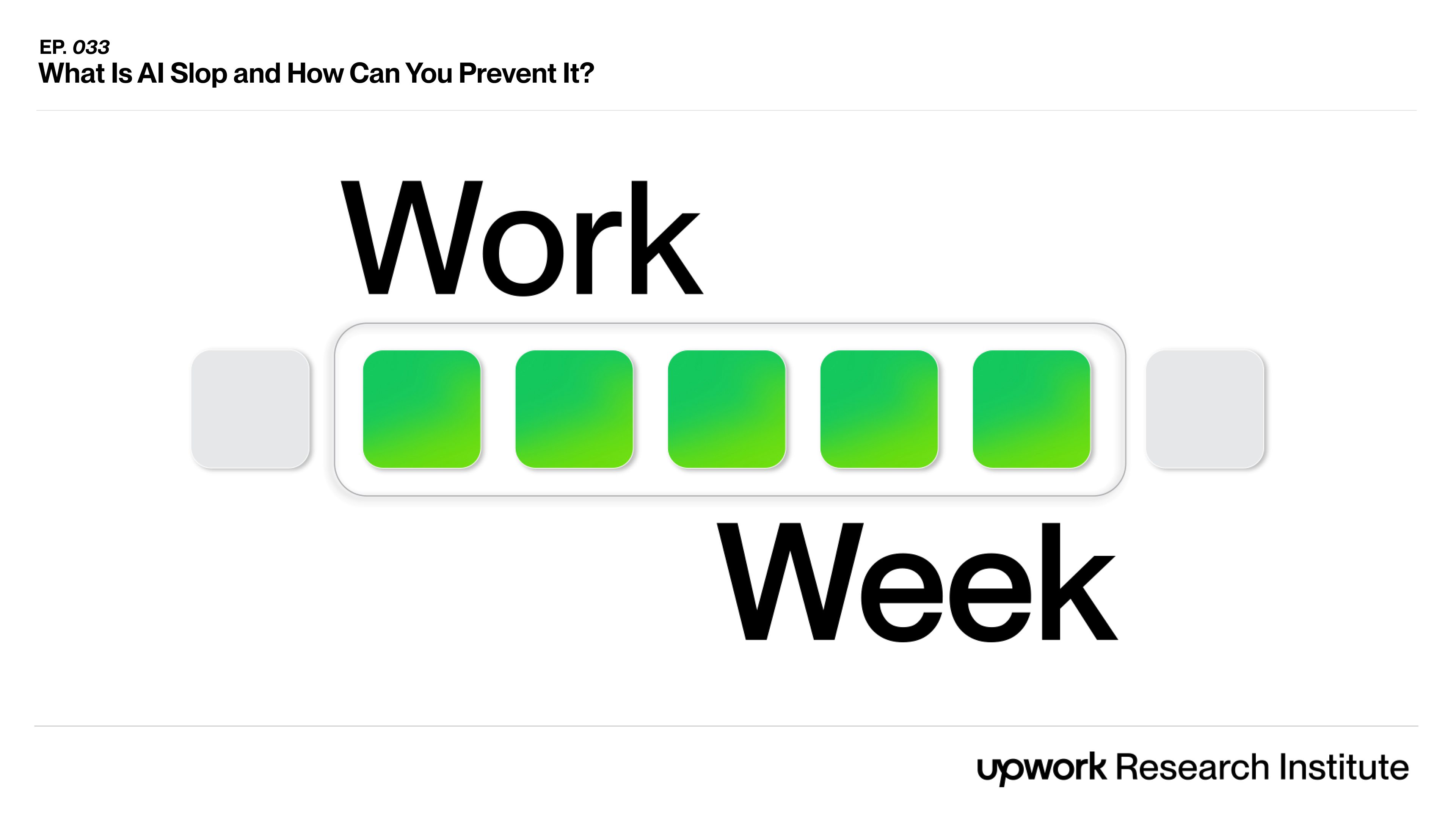
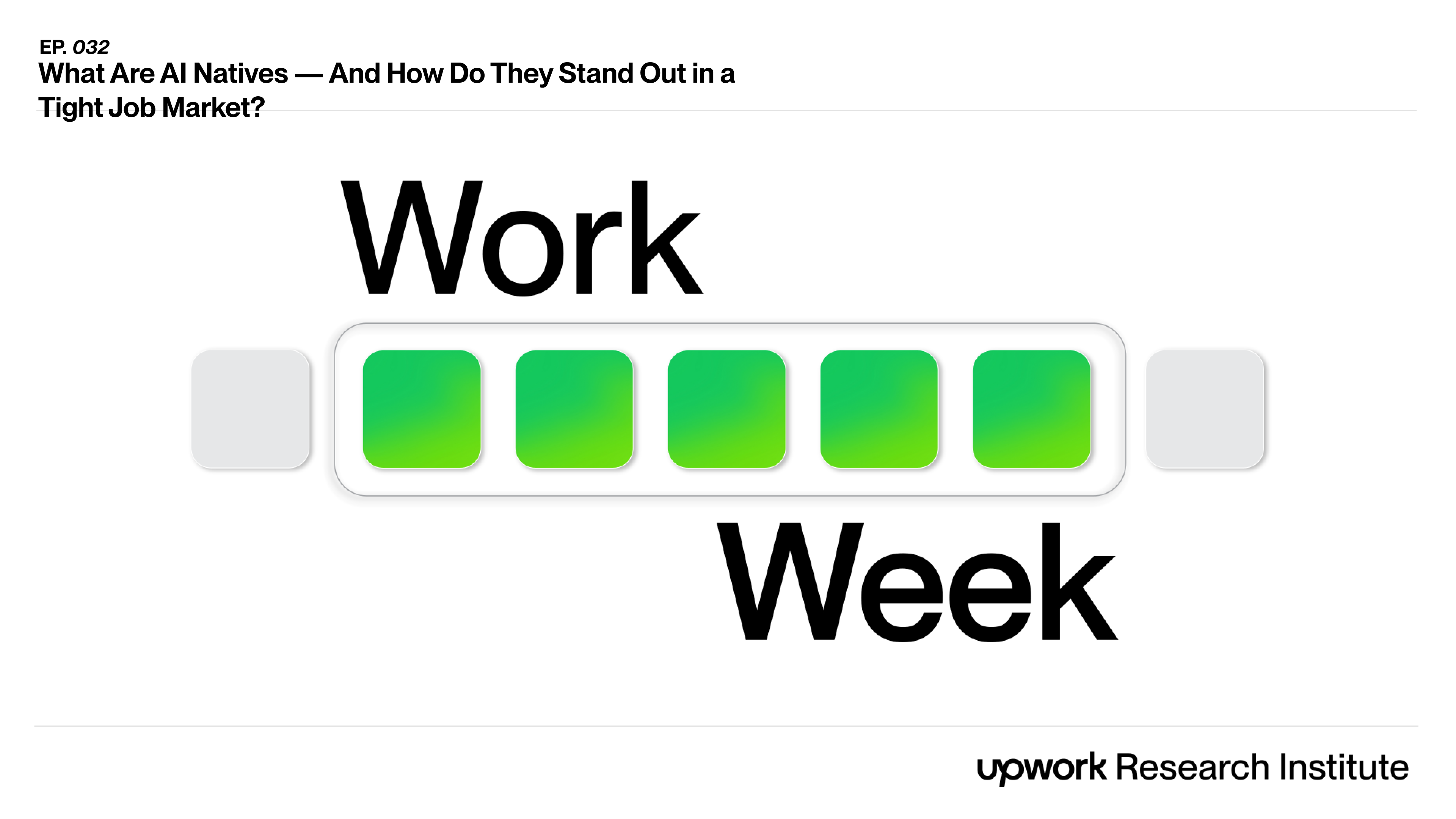
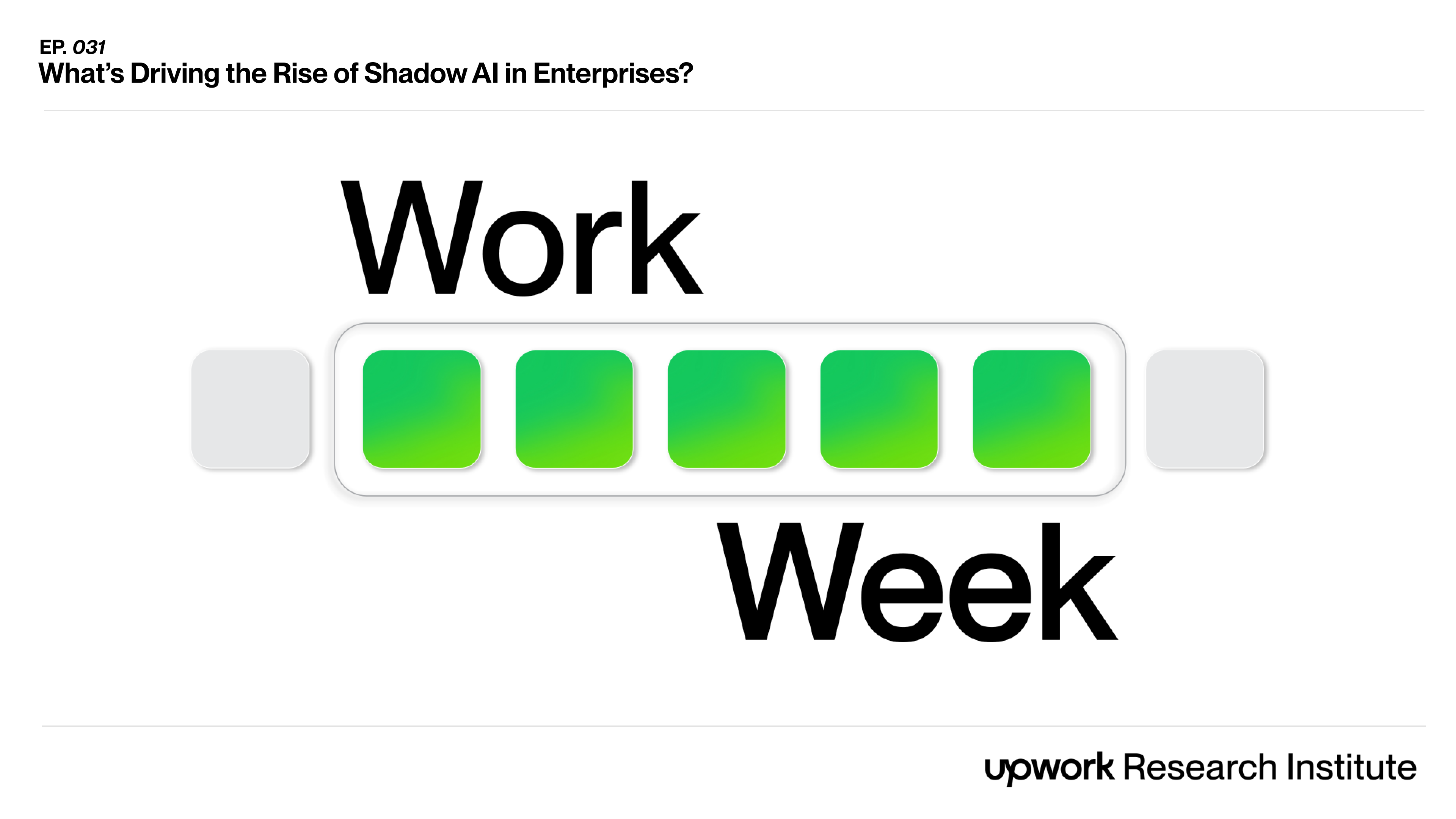
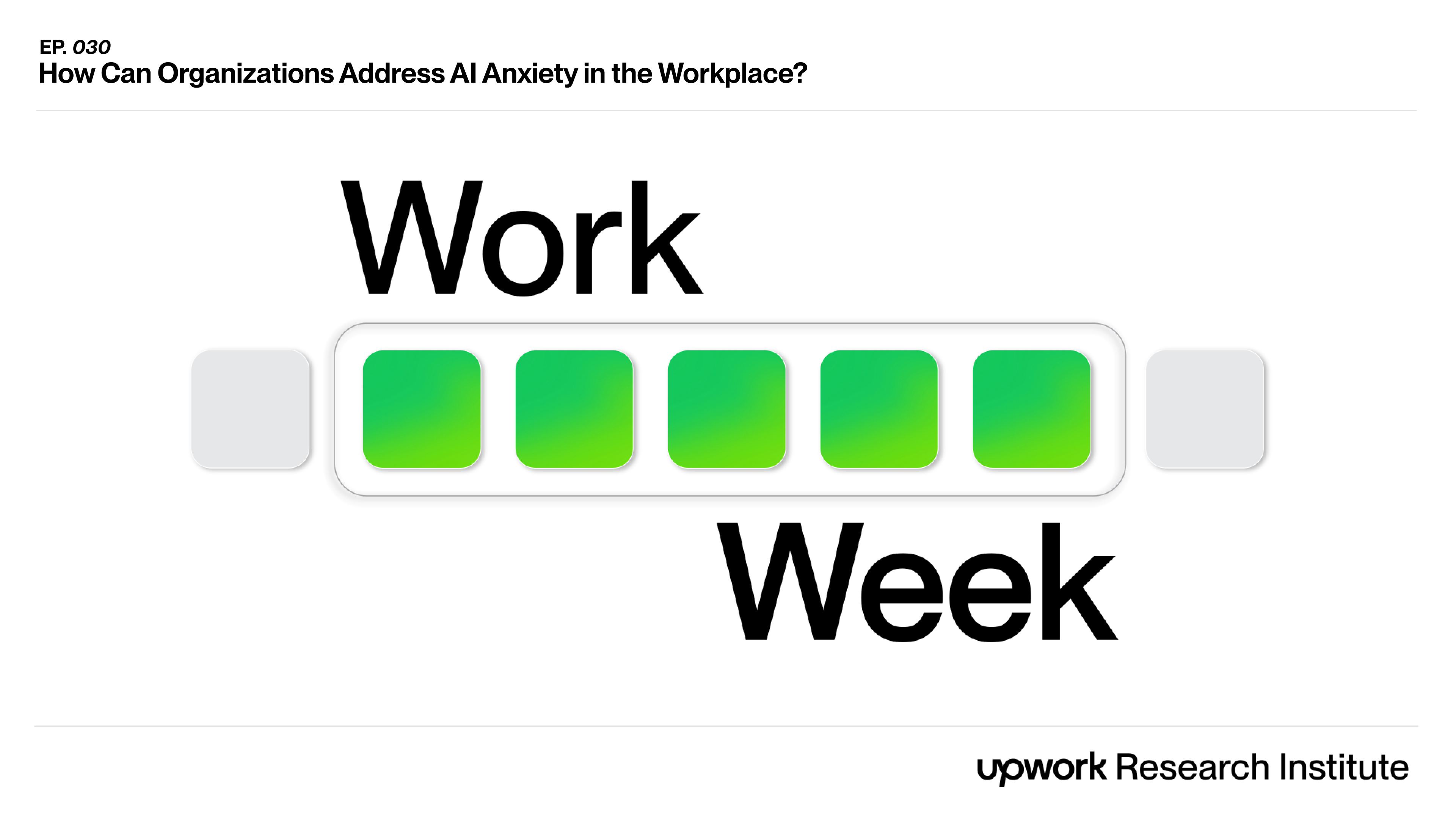
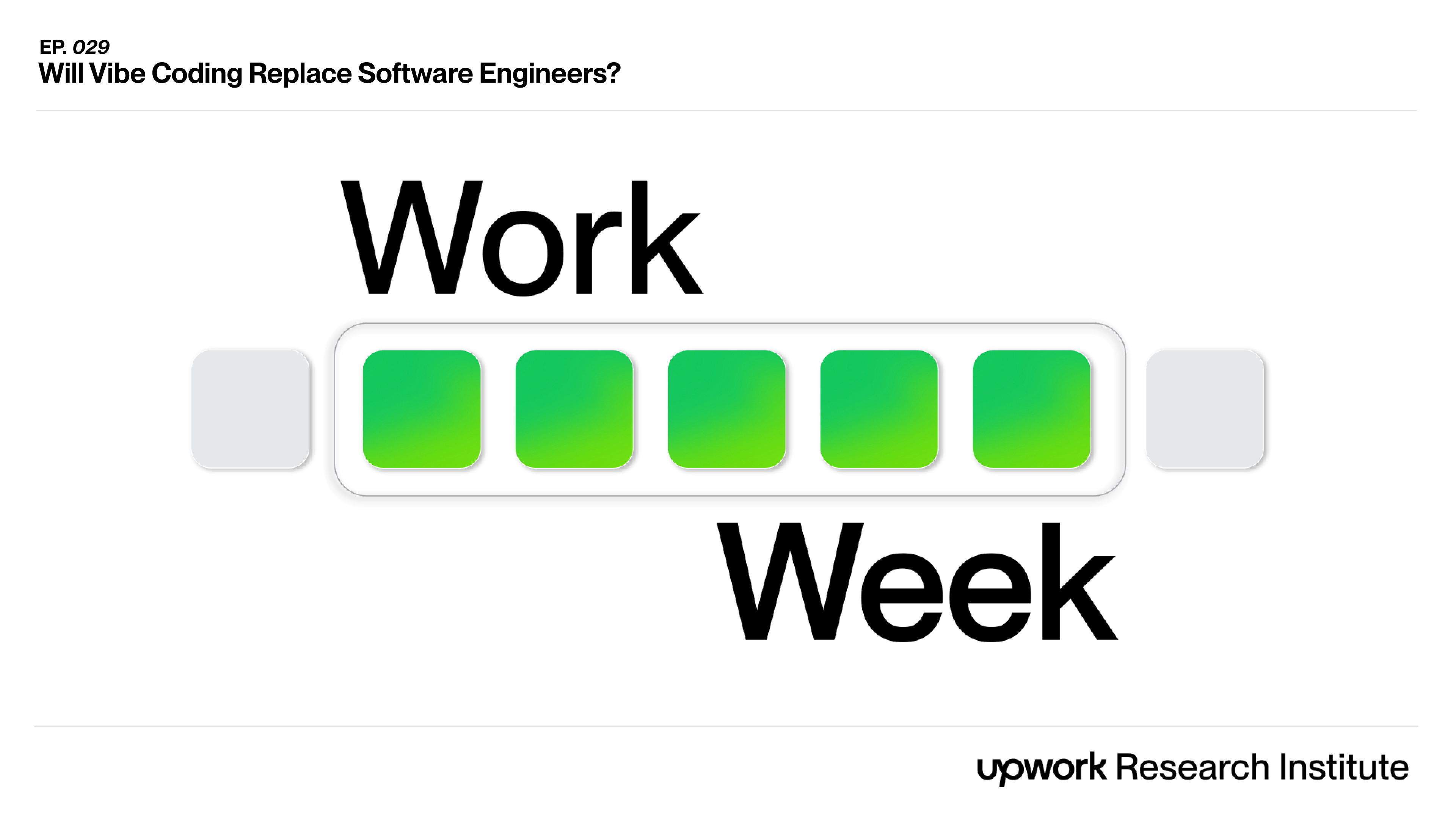
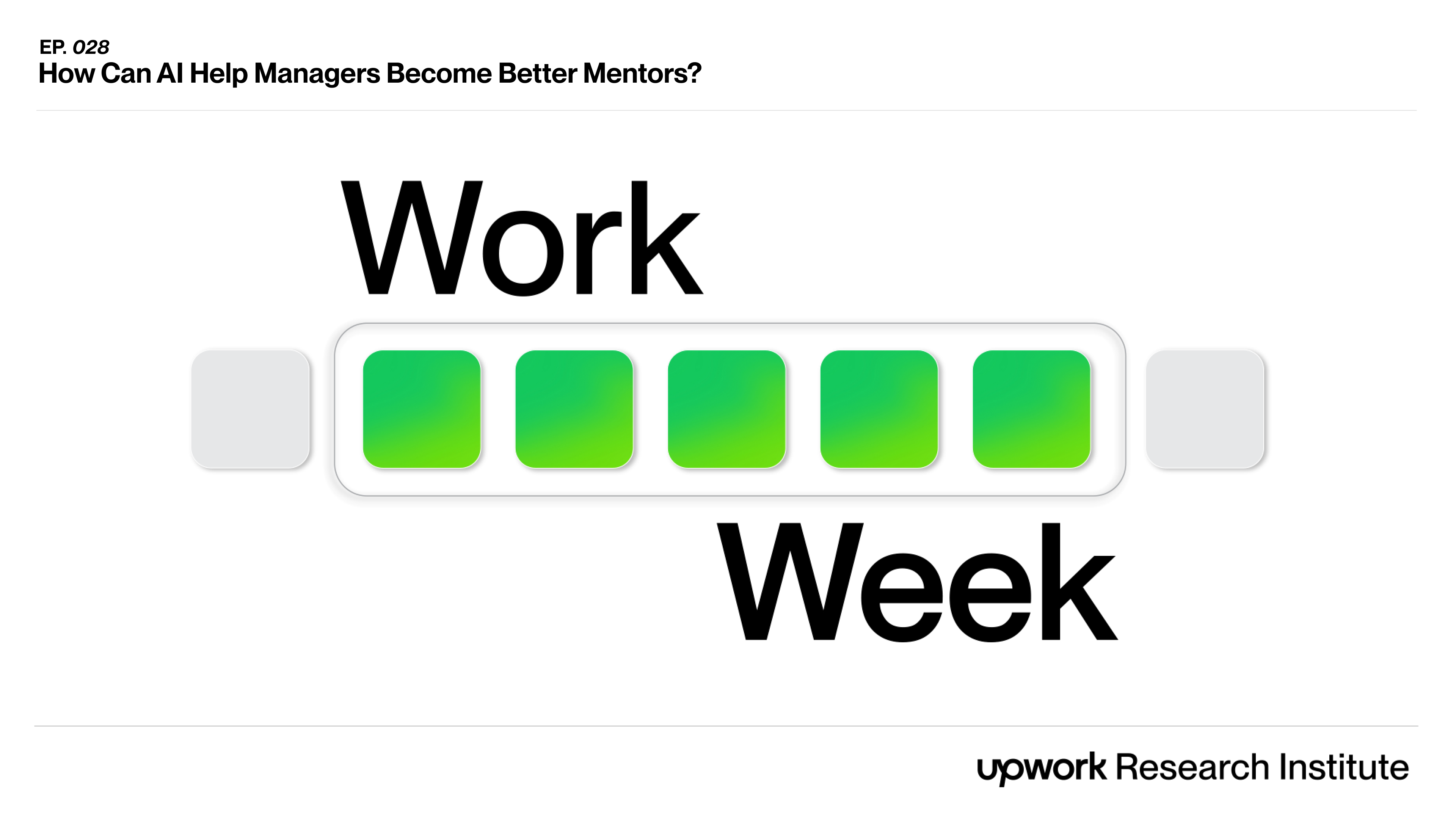

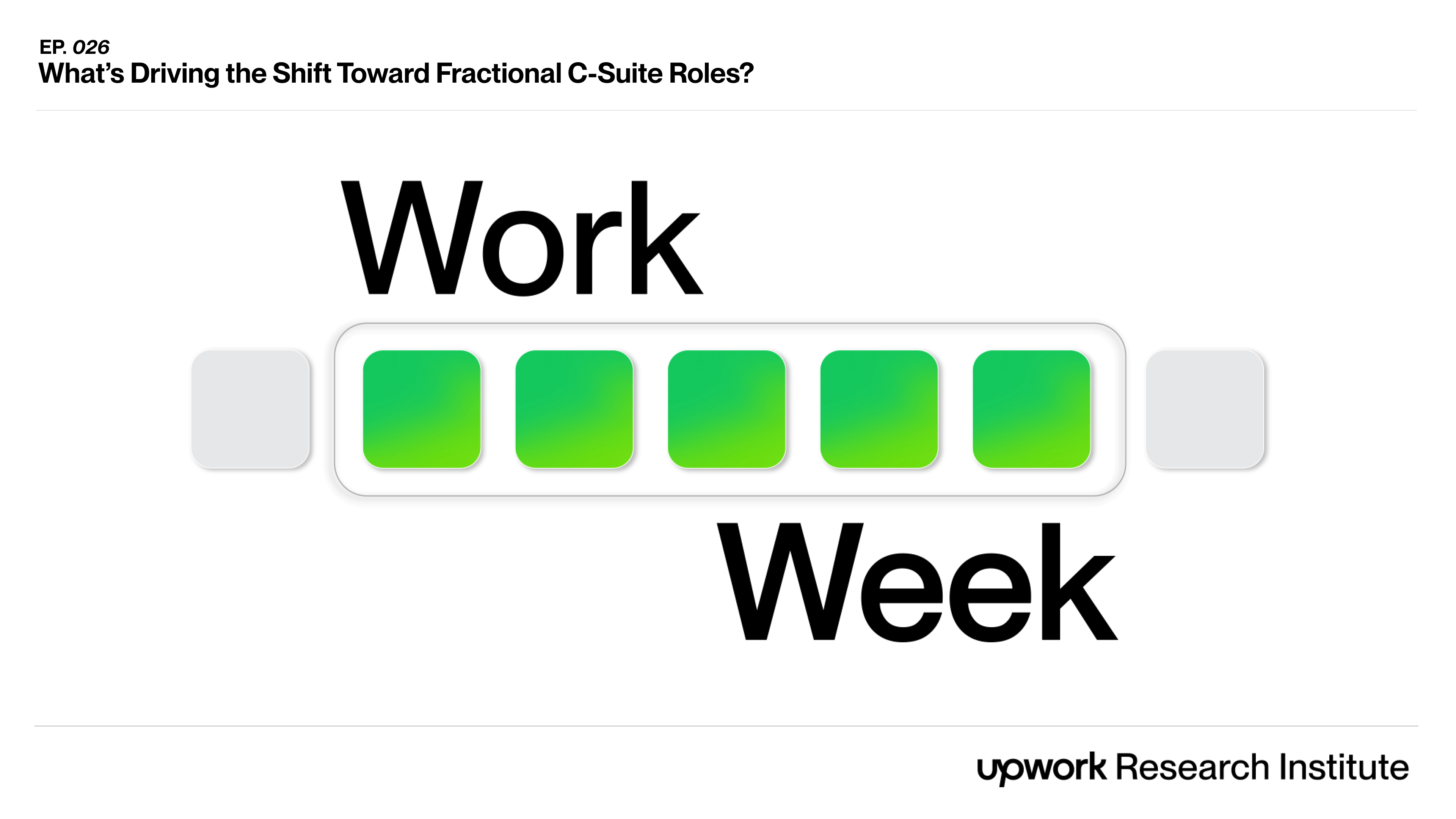
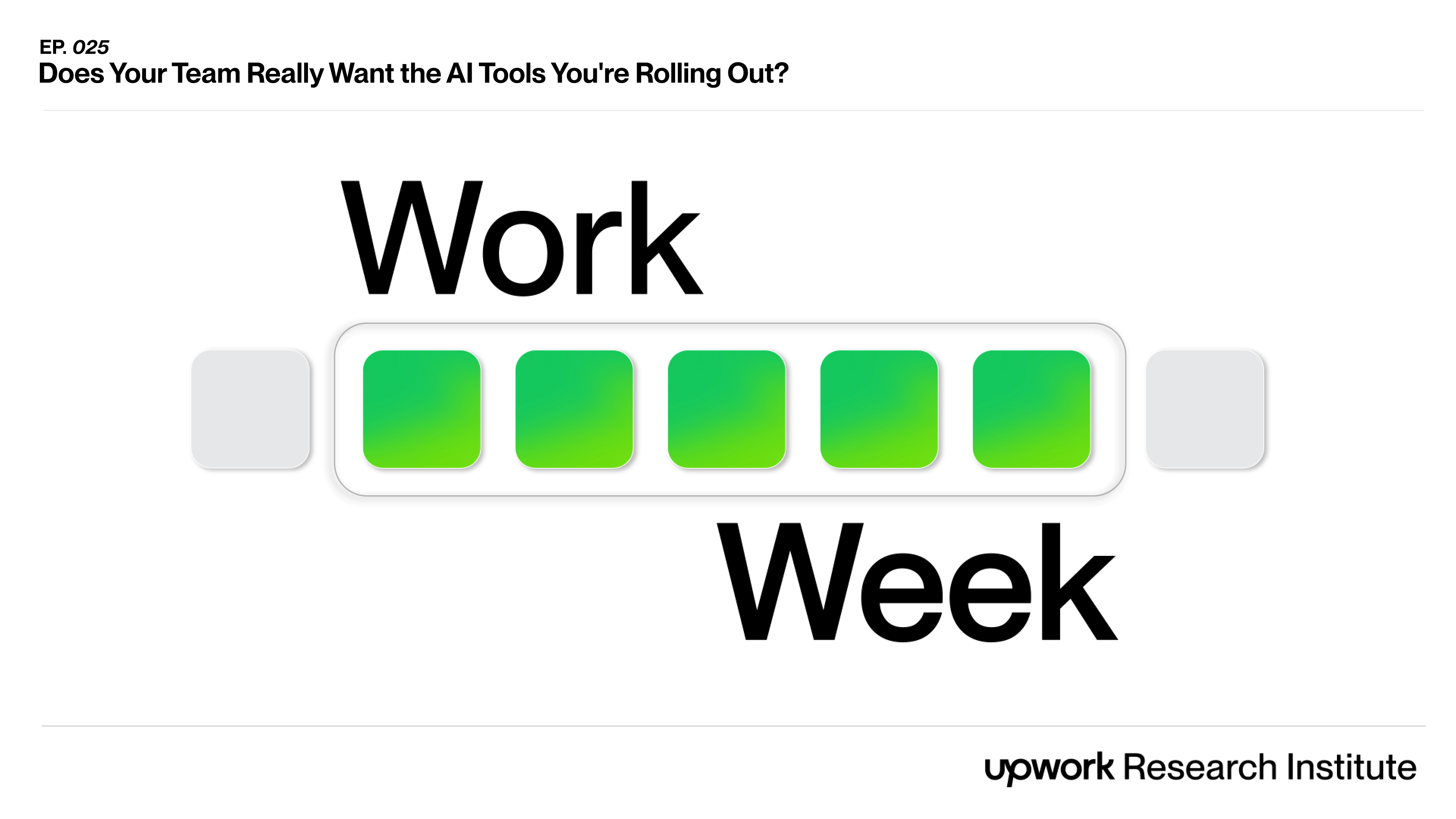
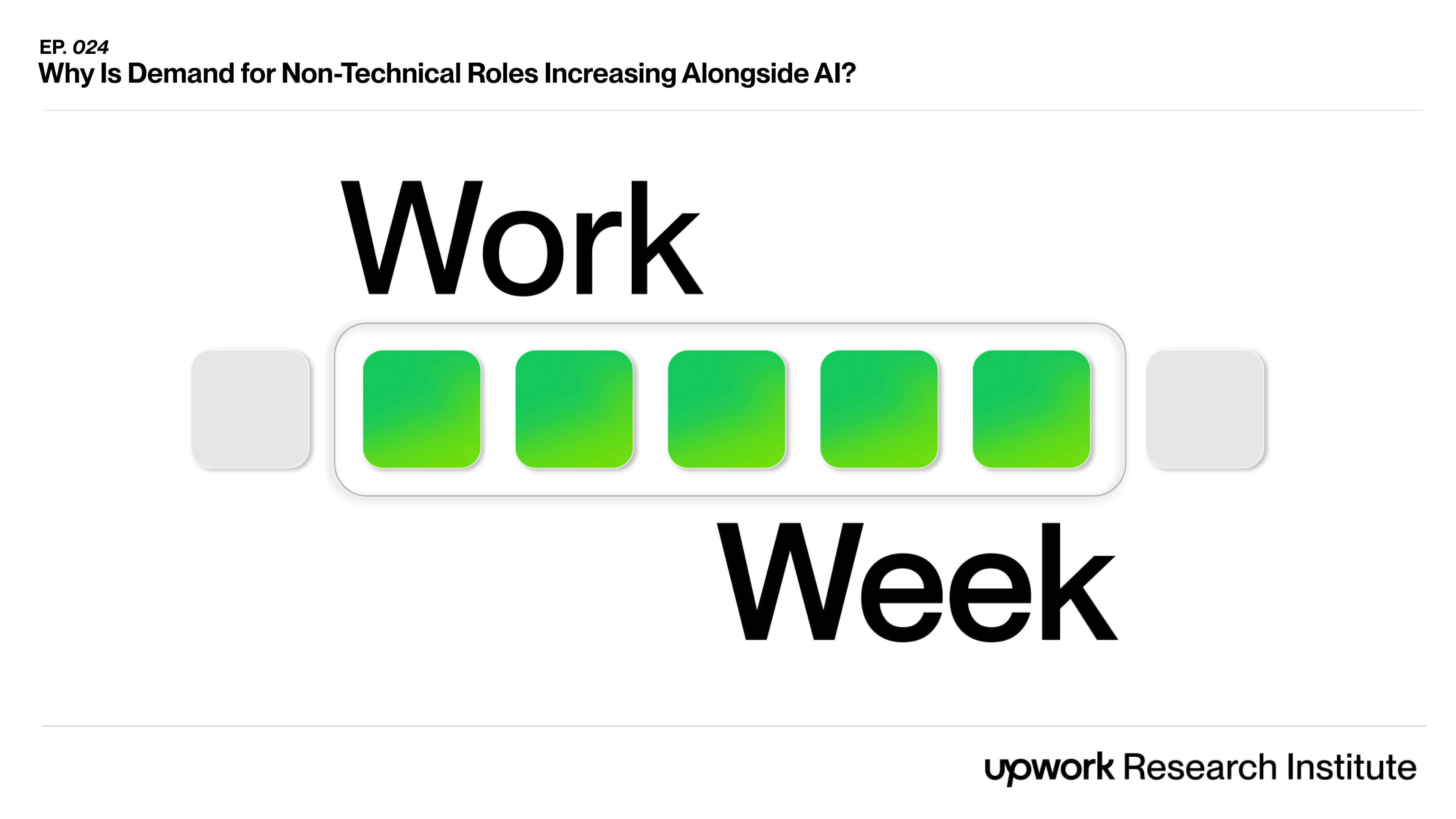
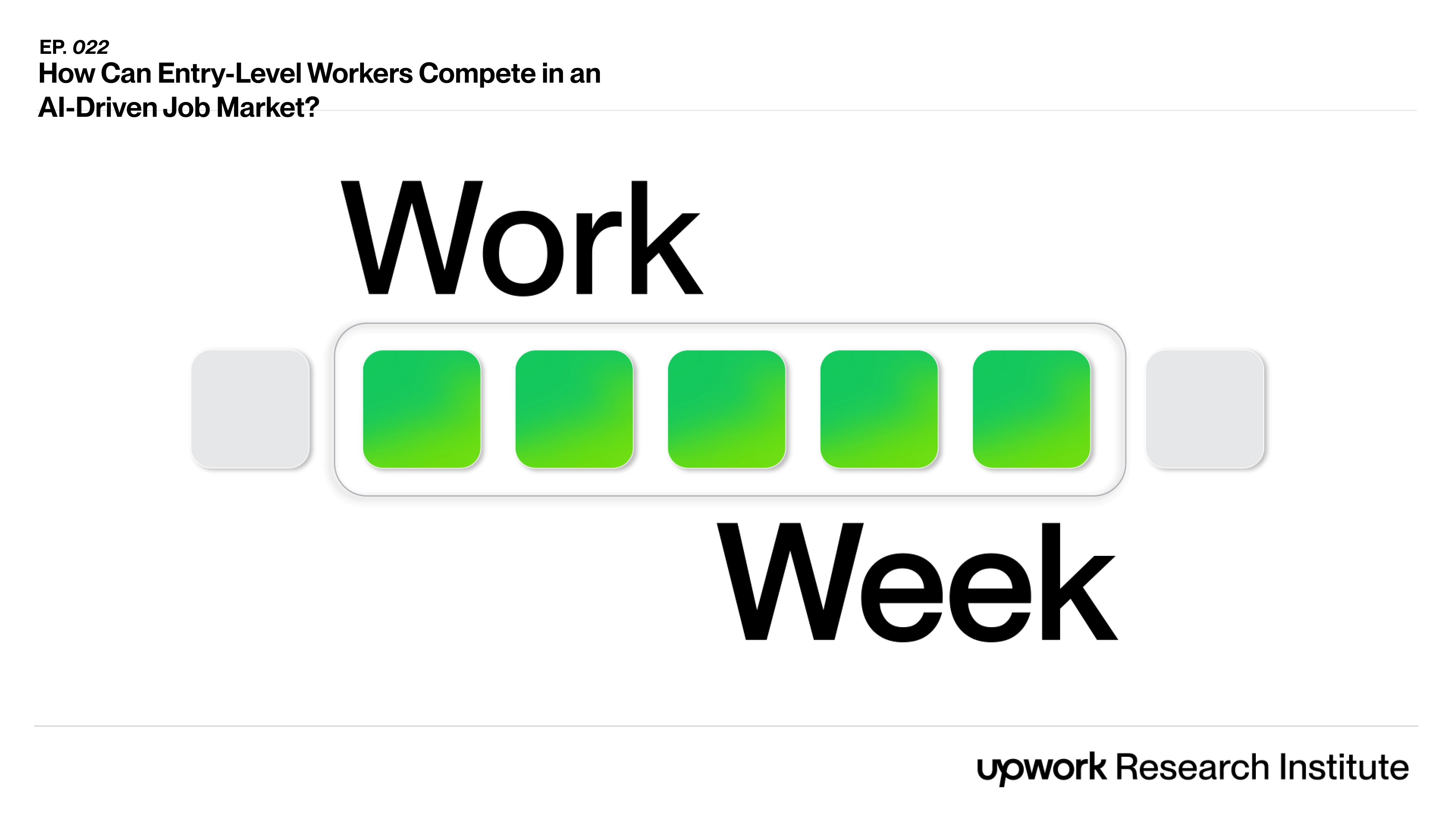

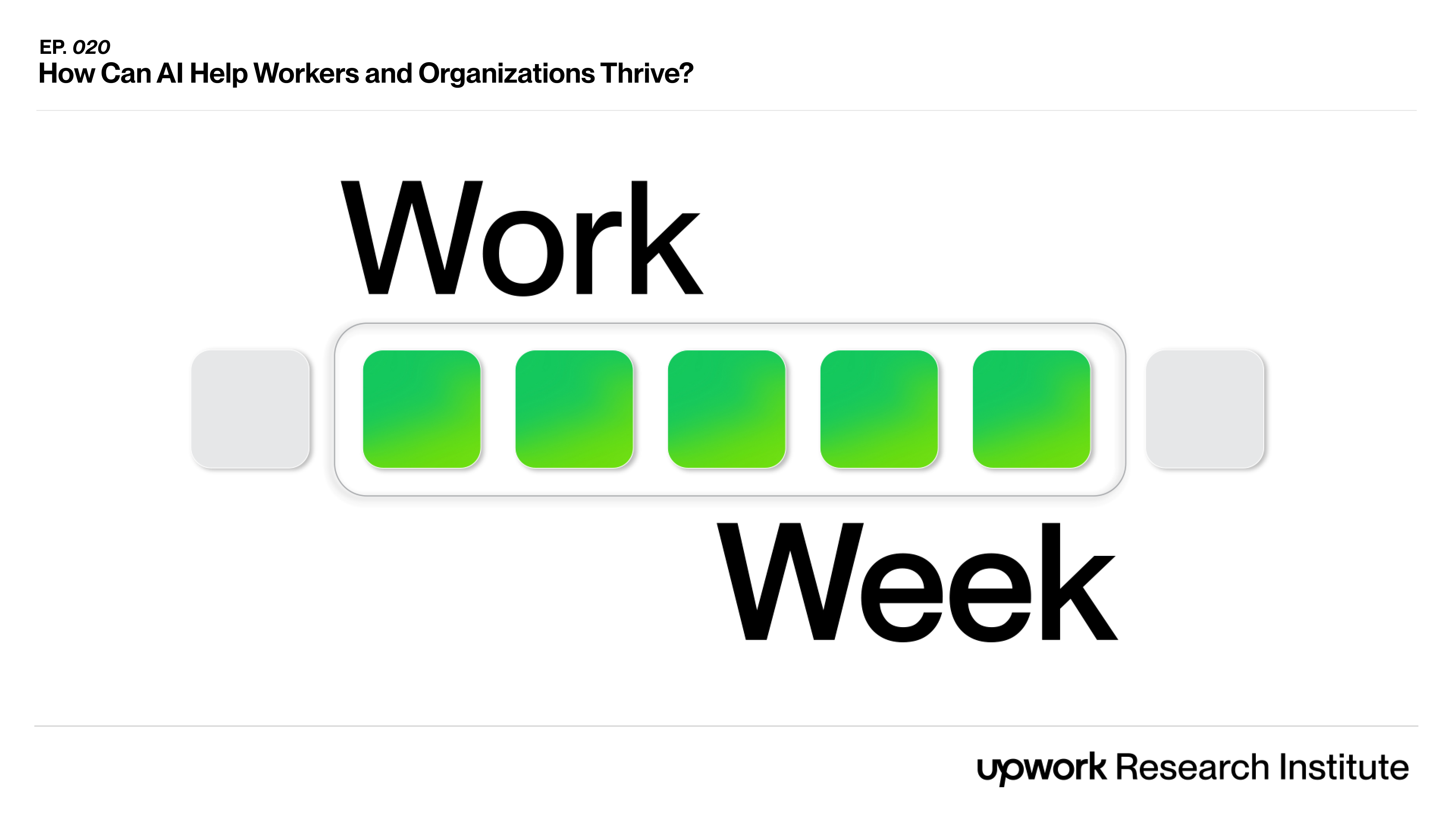
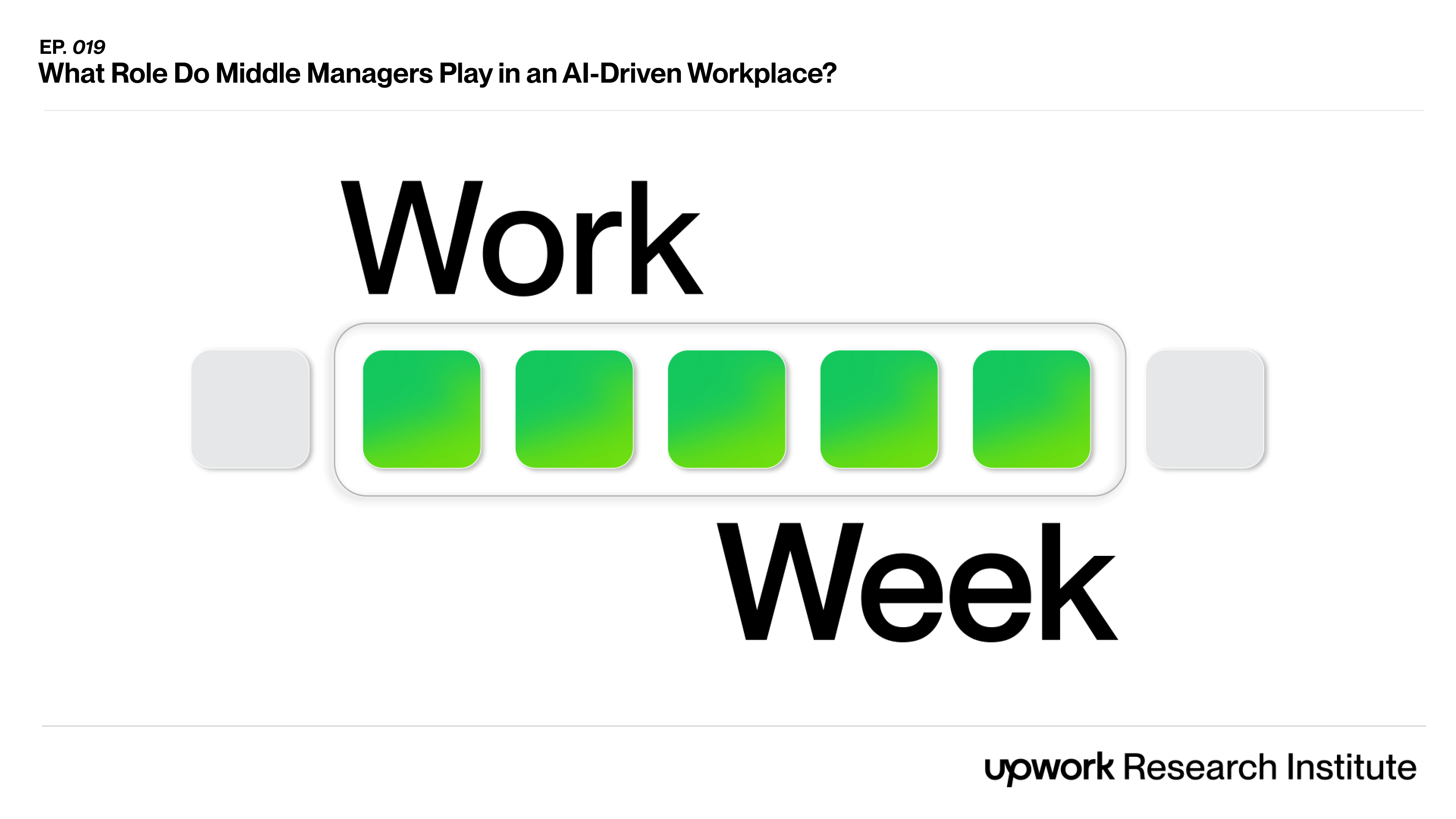
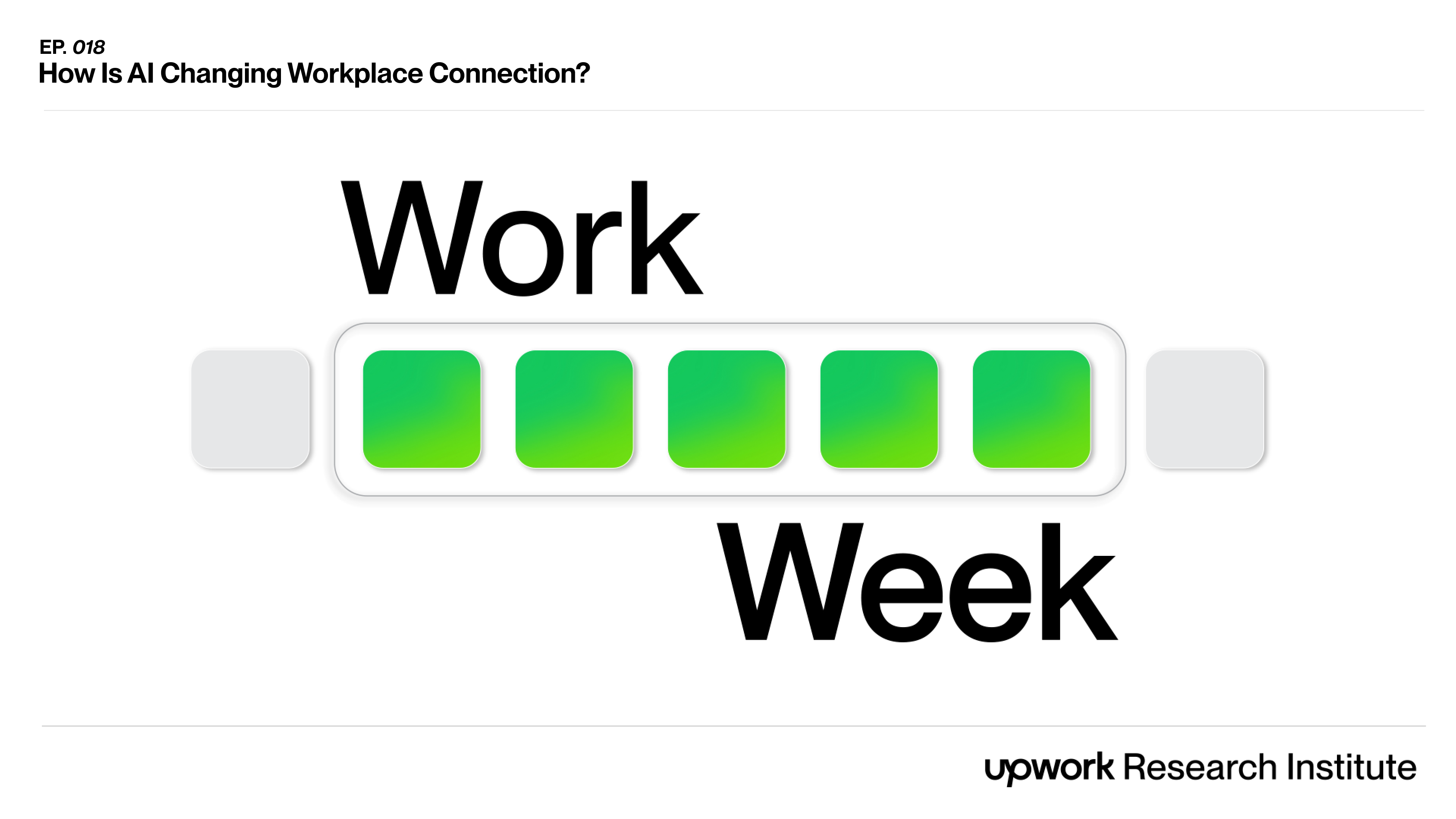

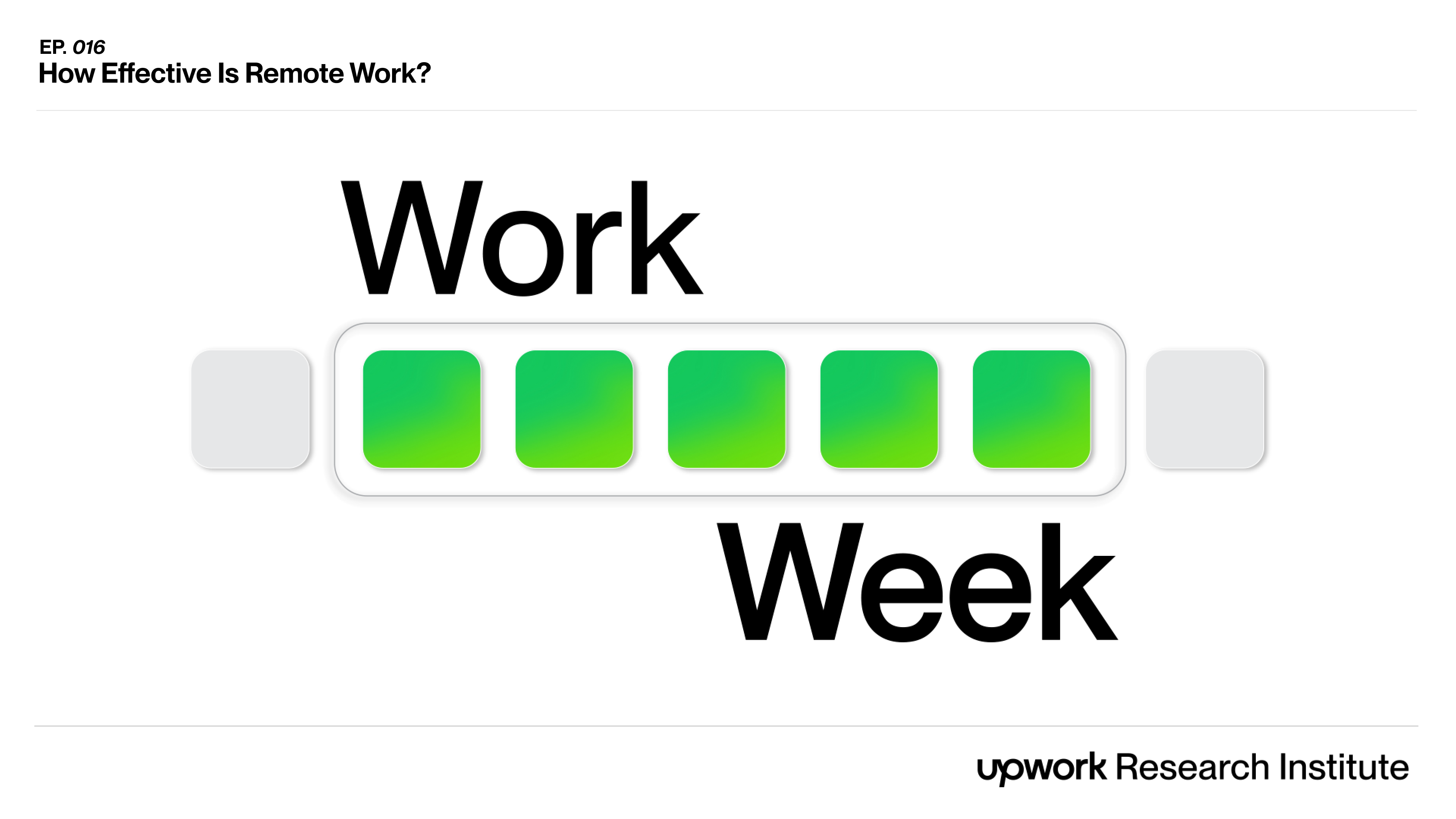
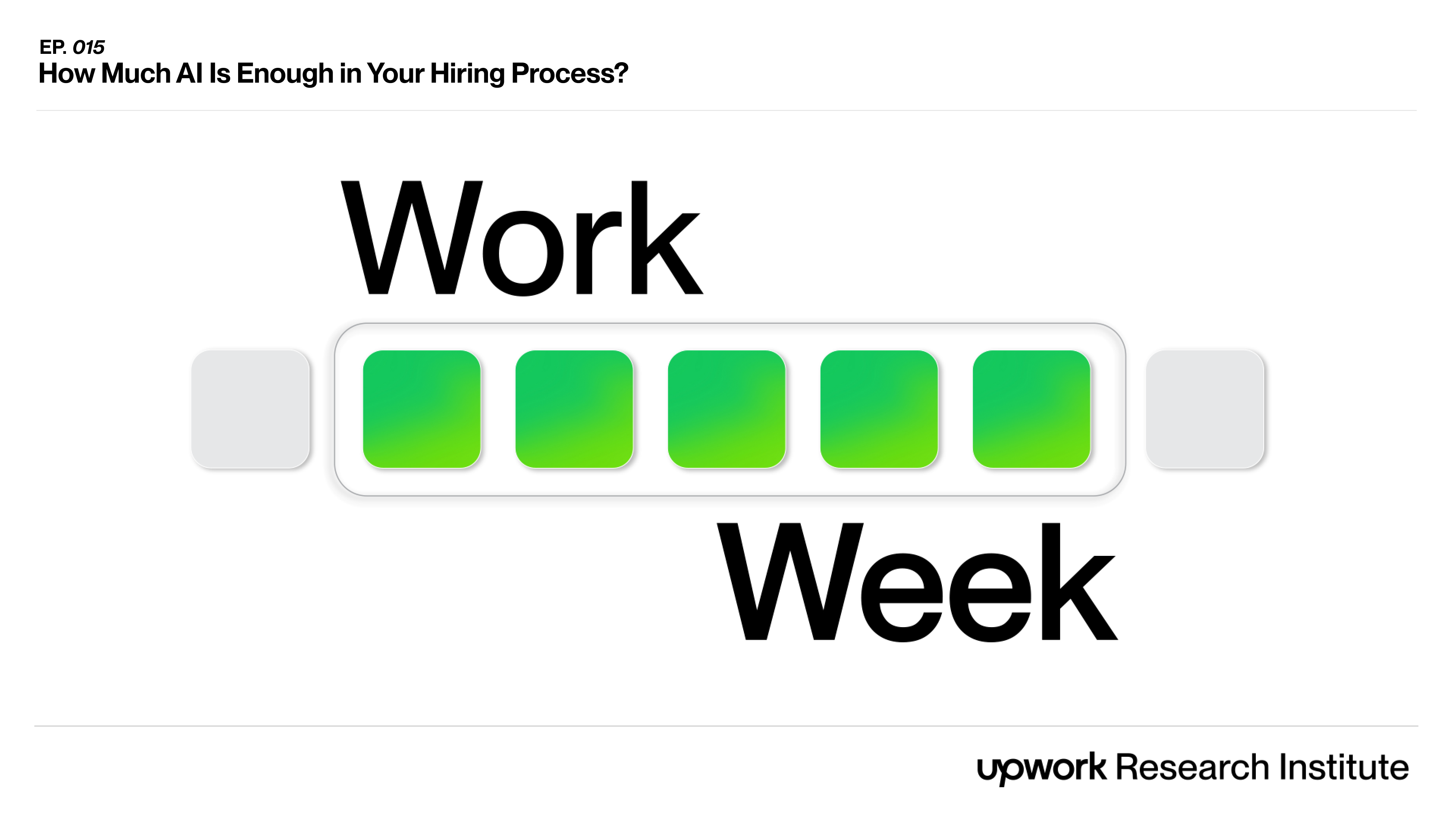

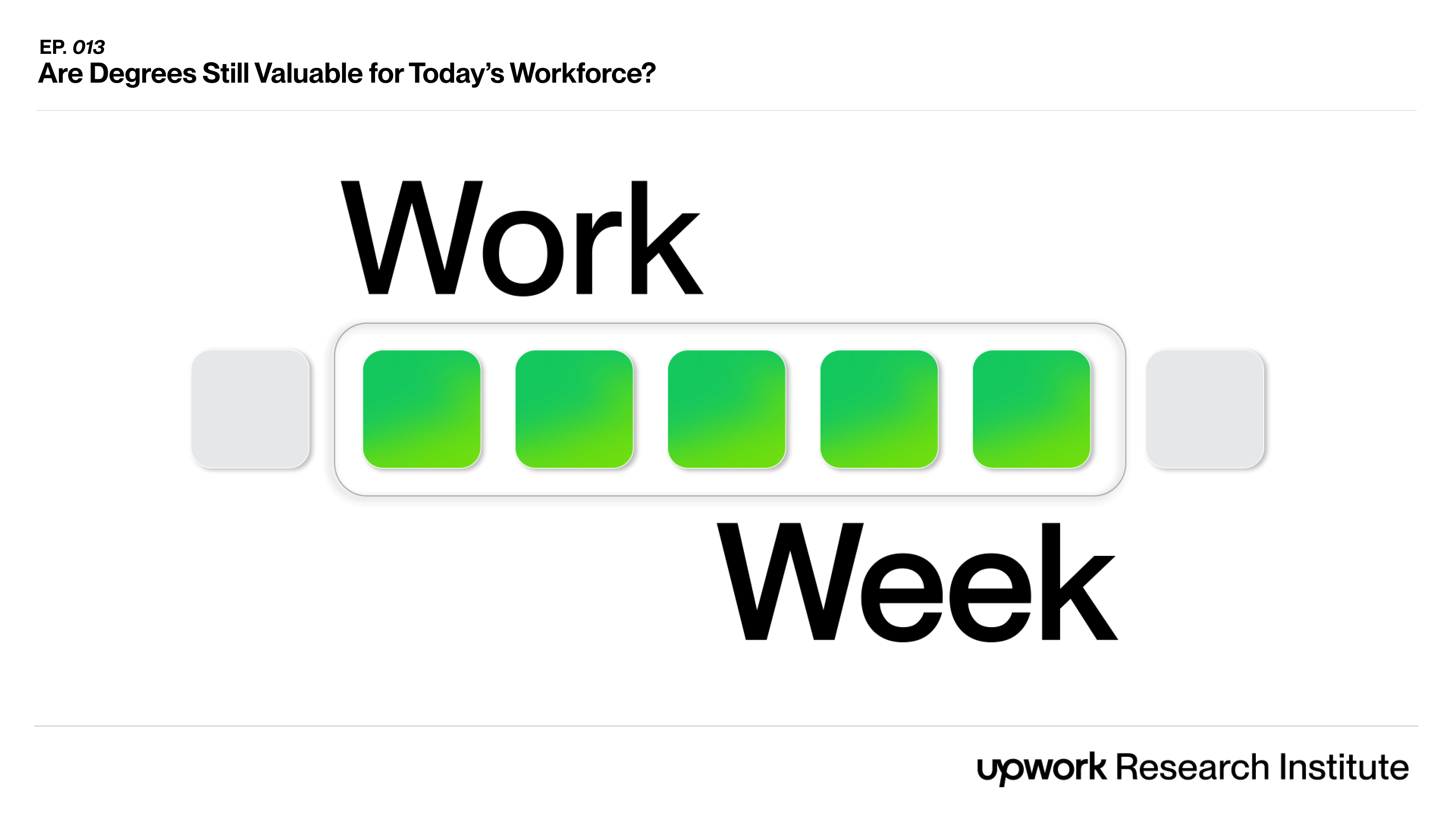
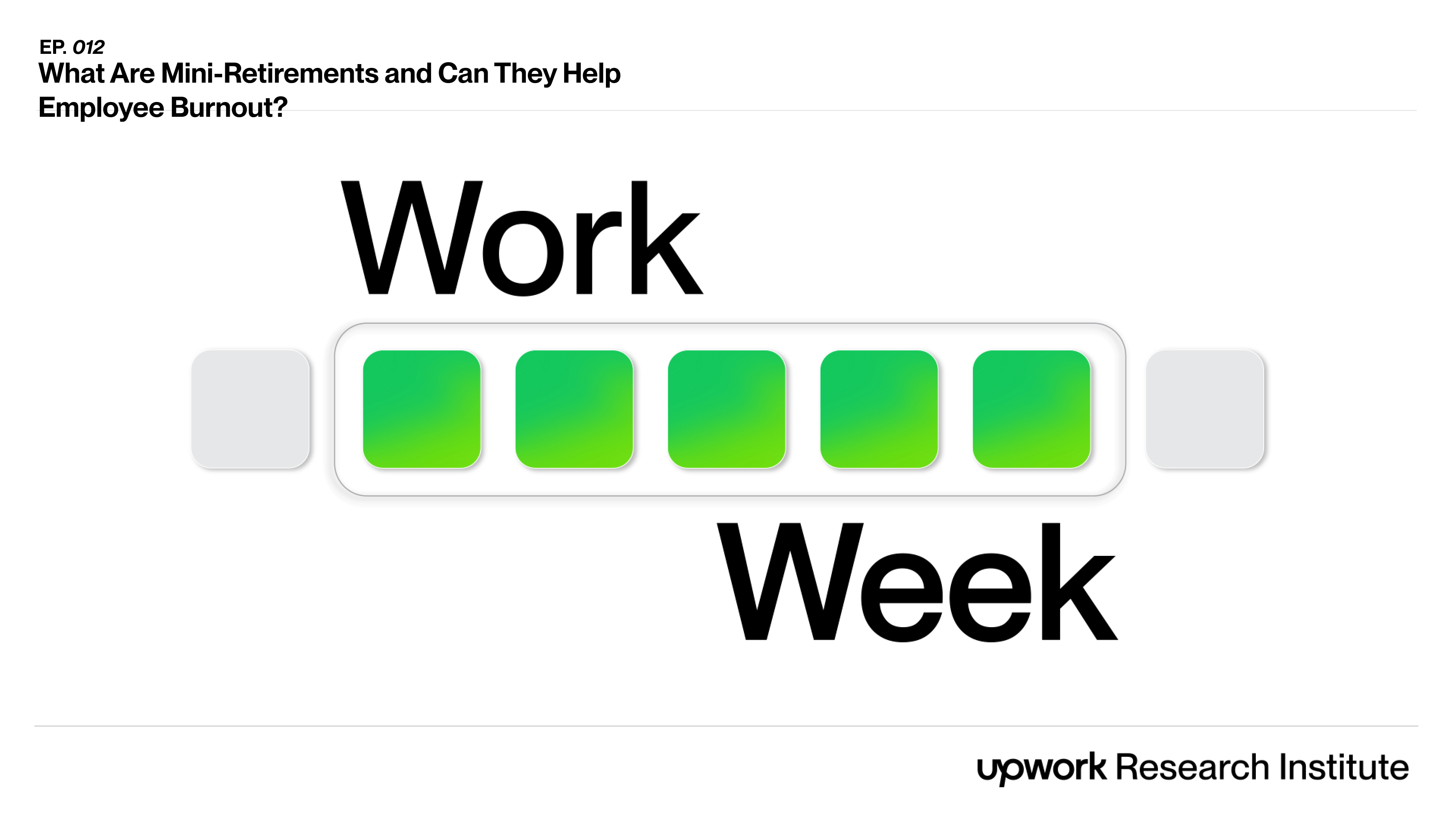
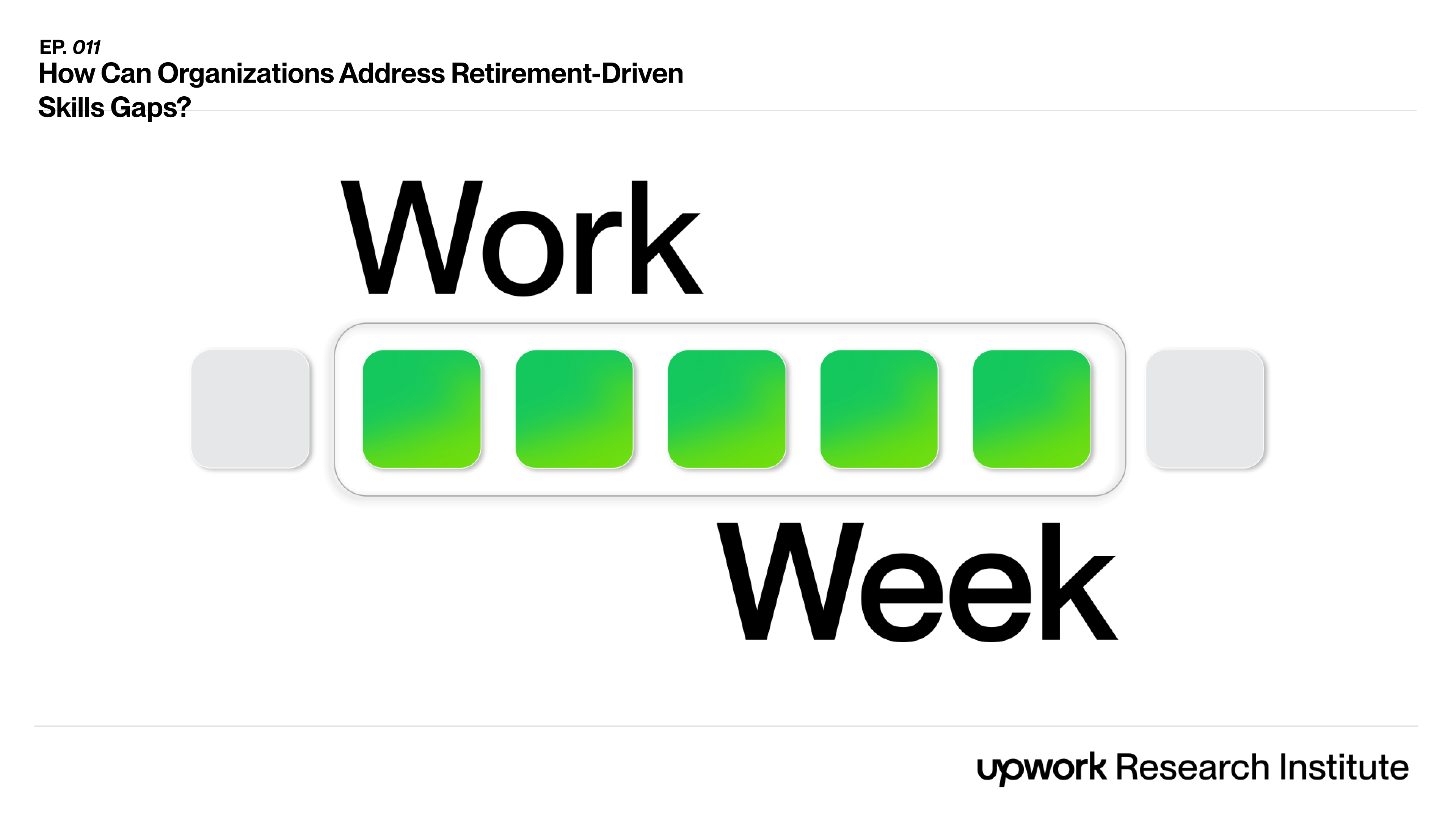
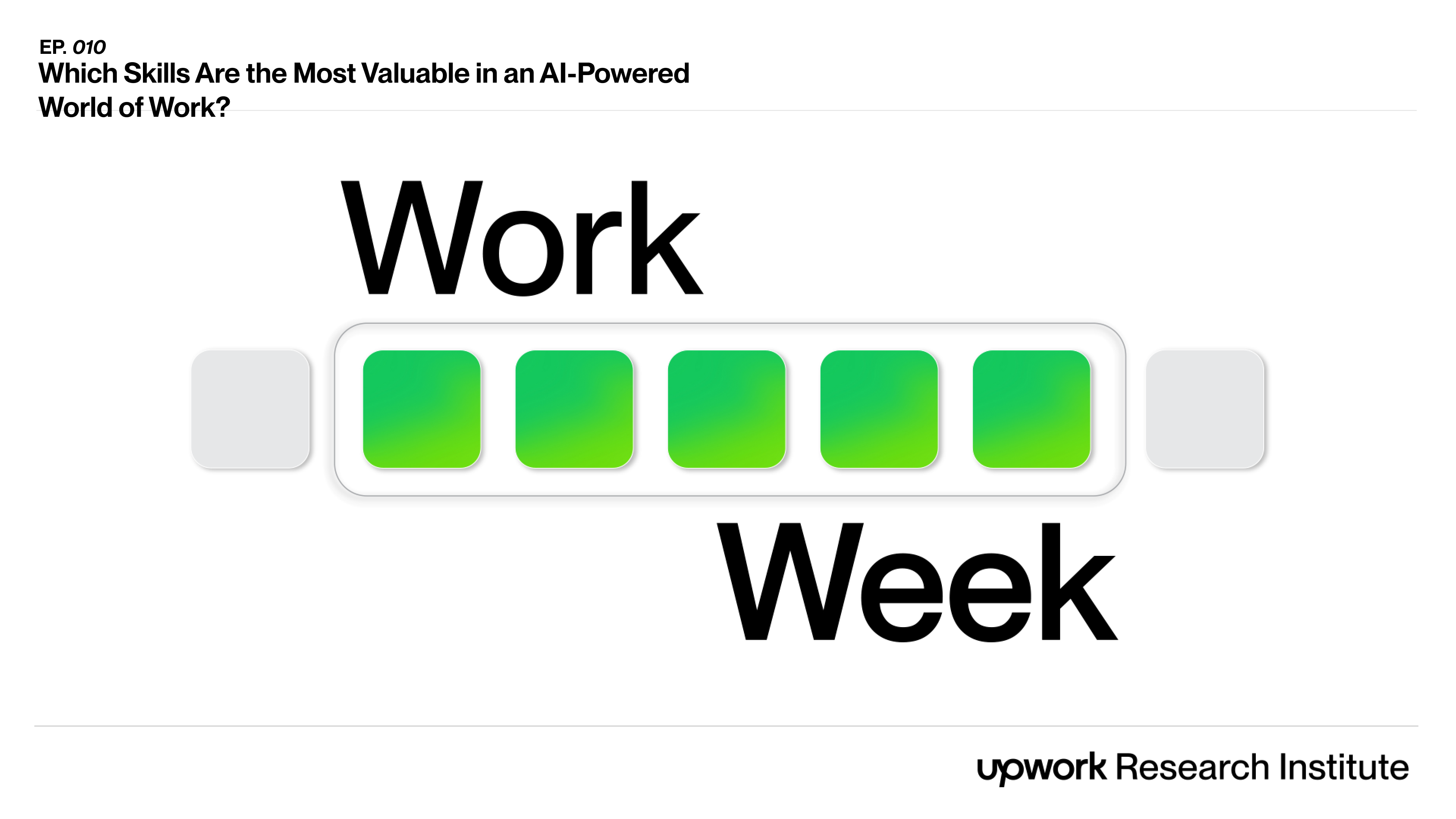
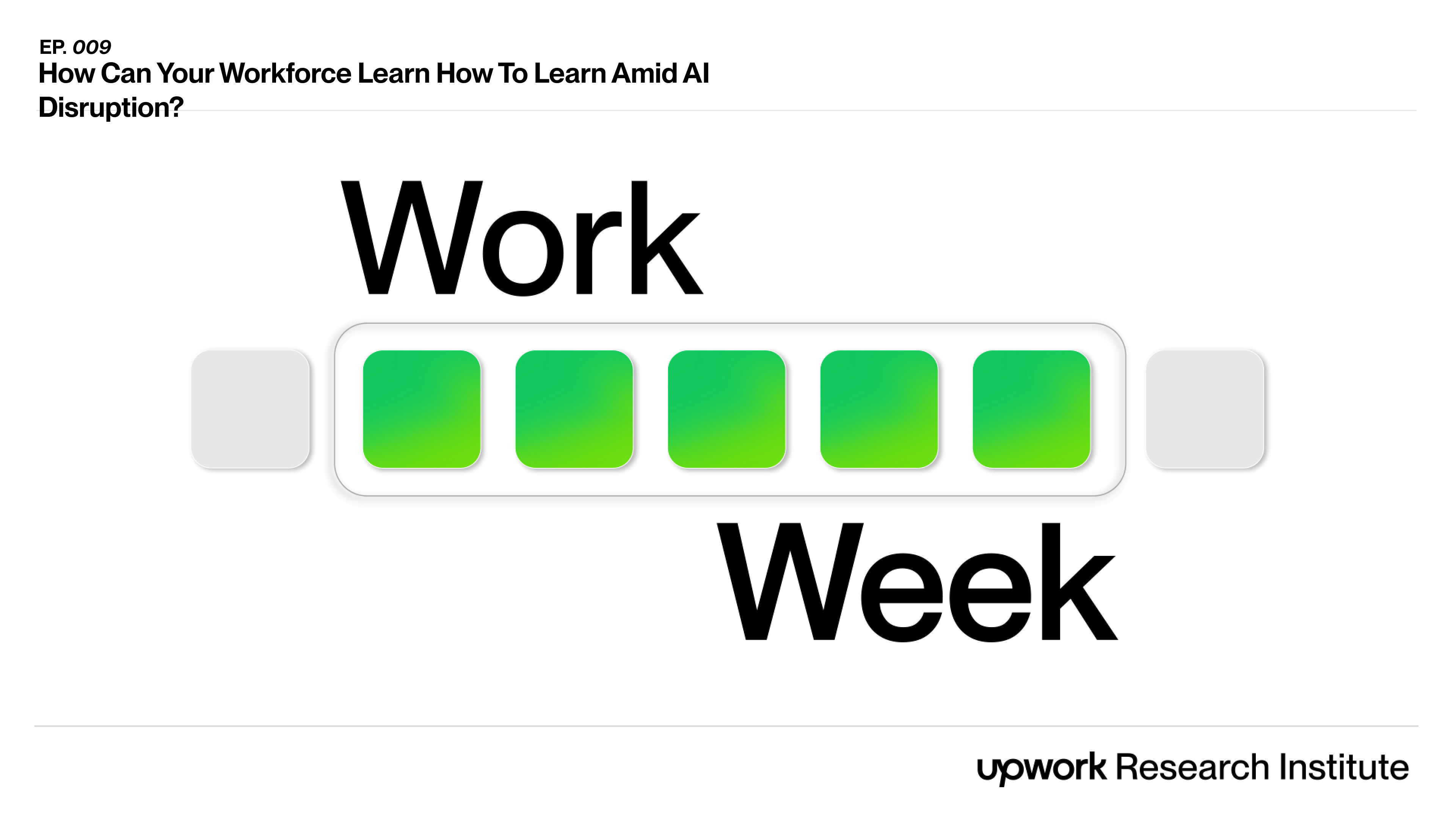
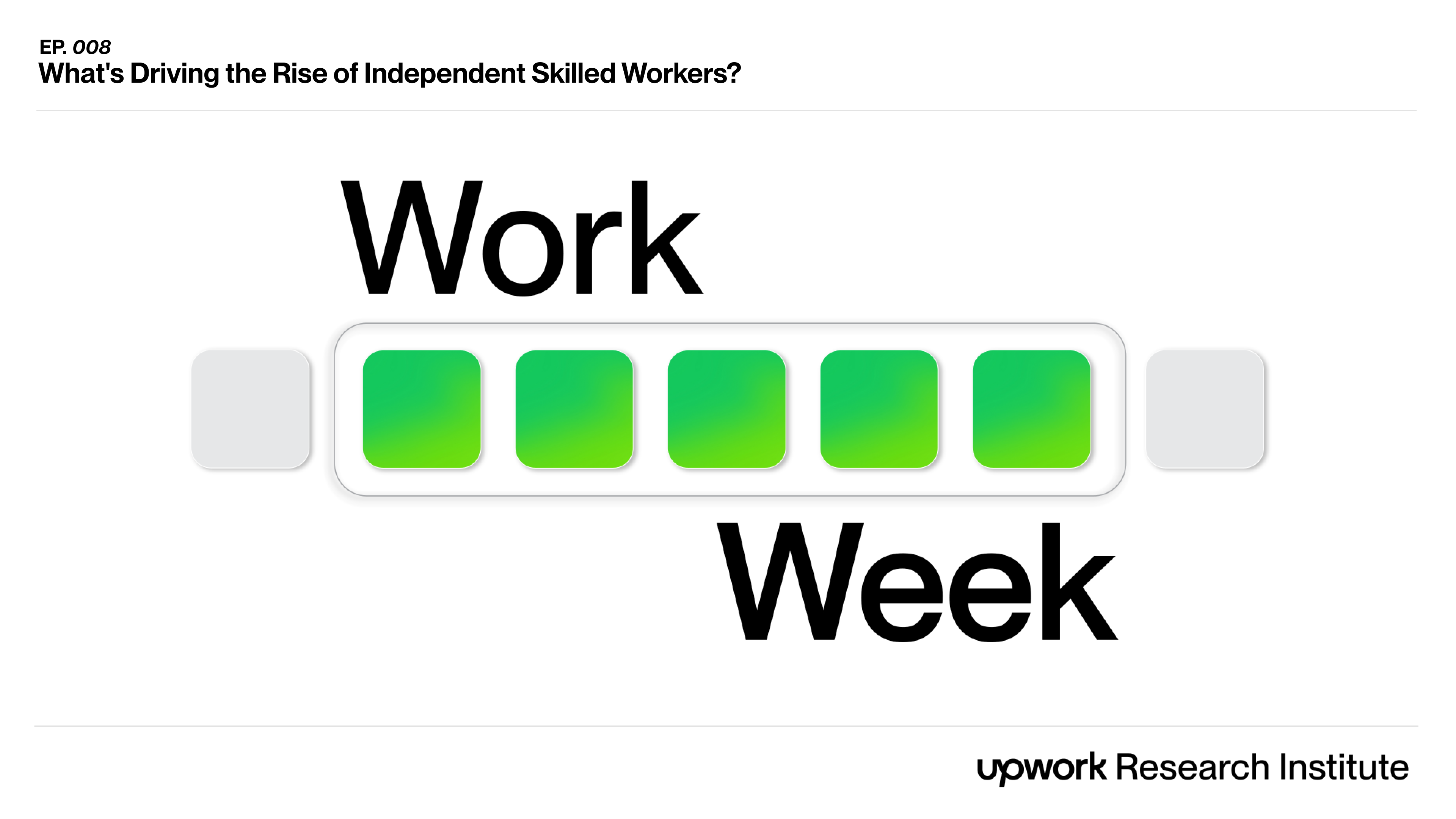
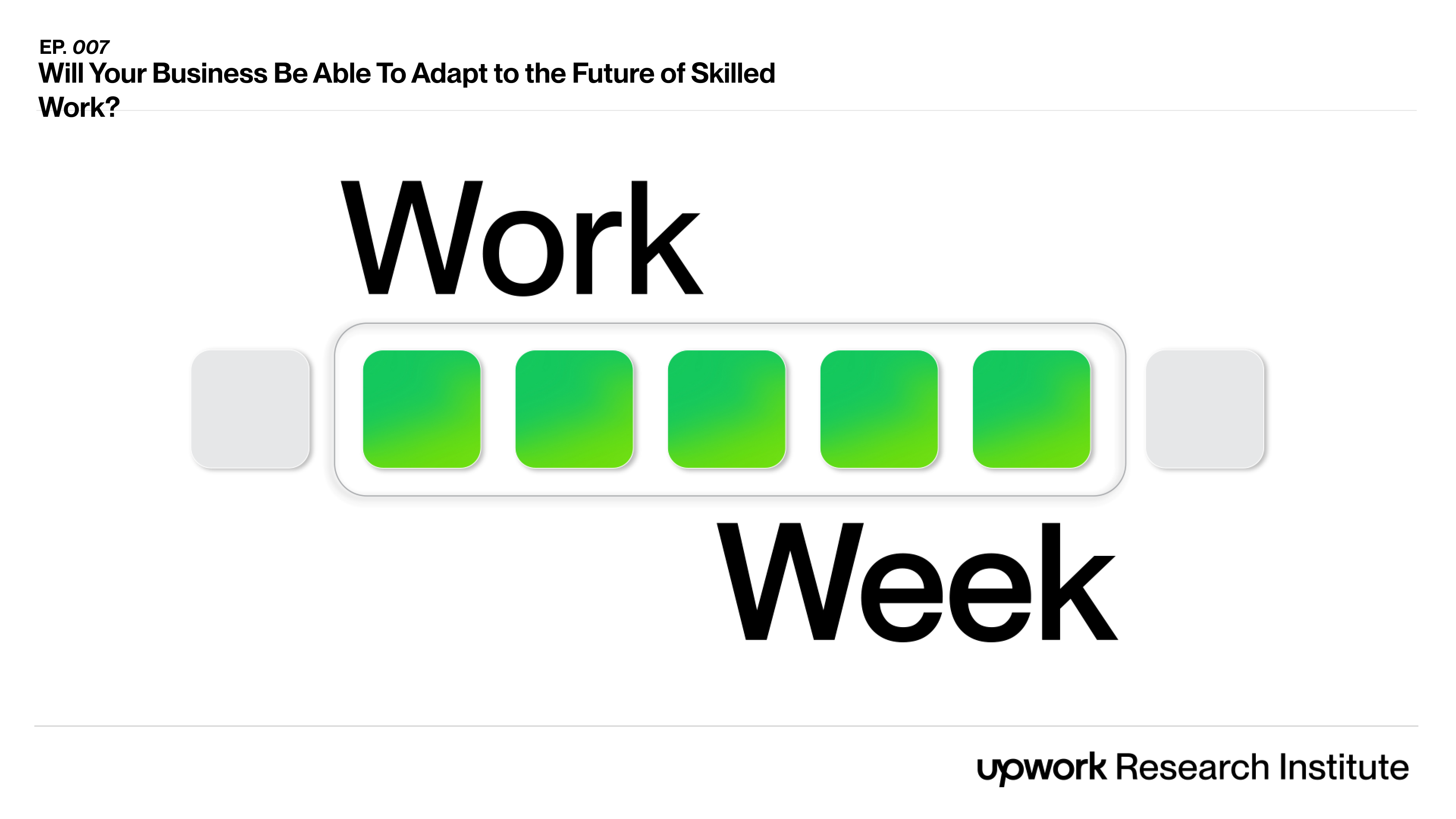
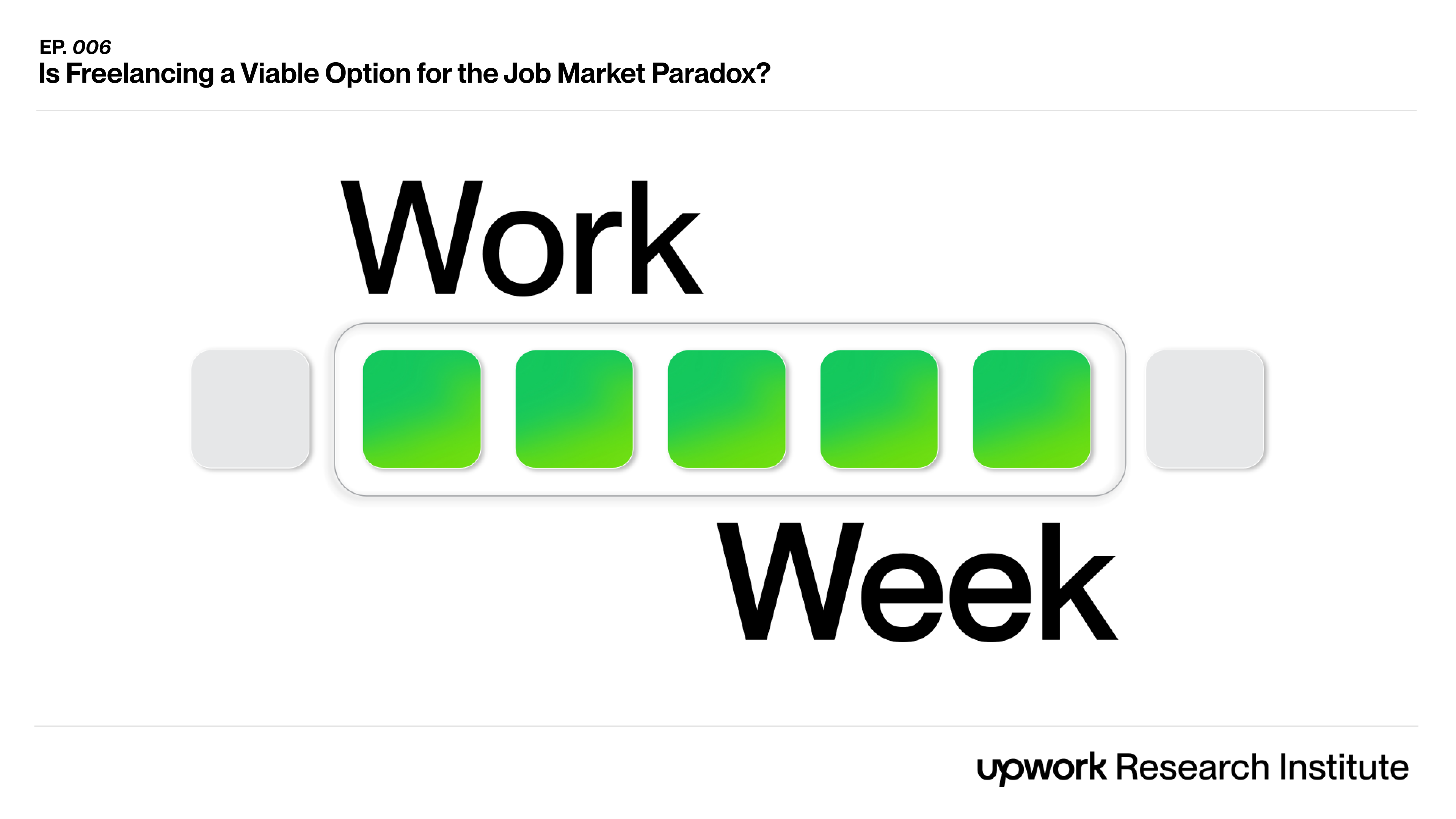
.png)
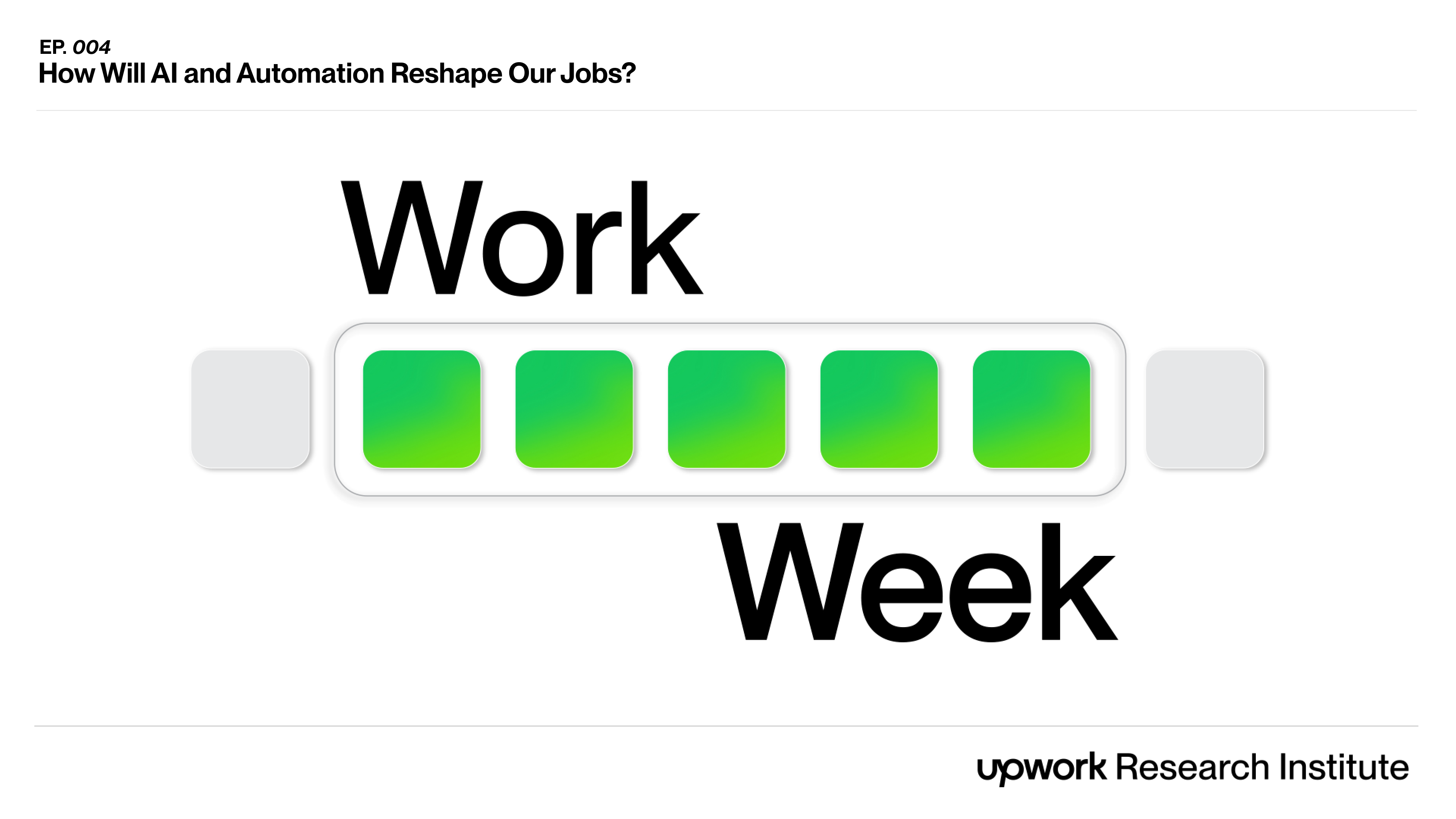

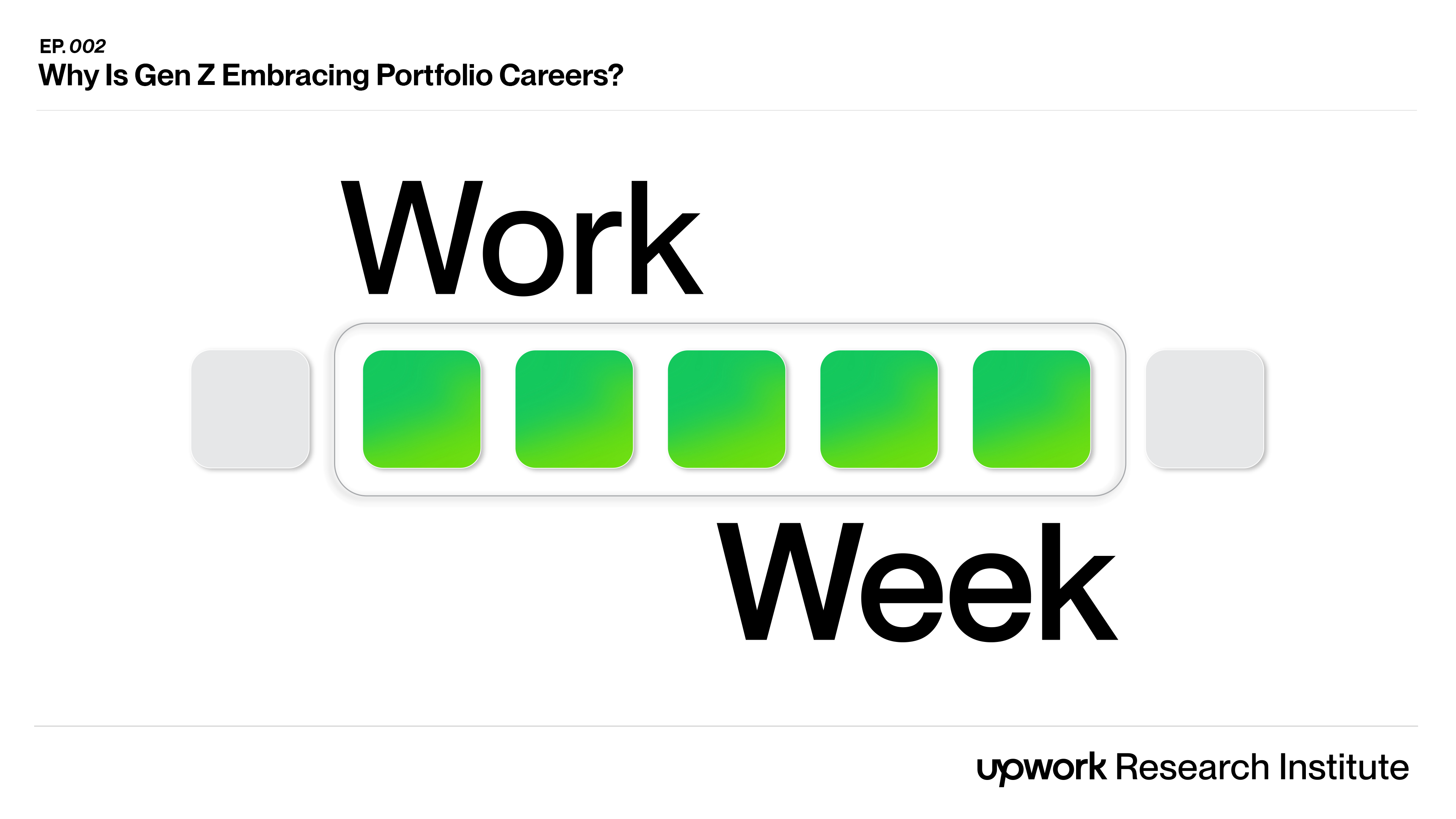
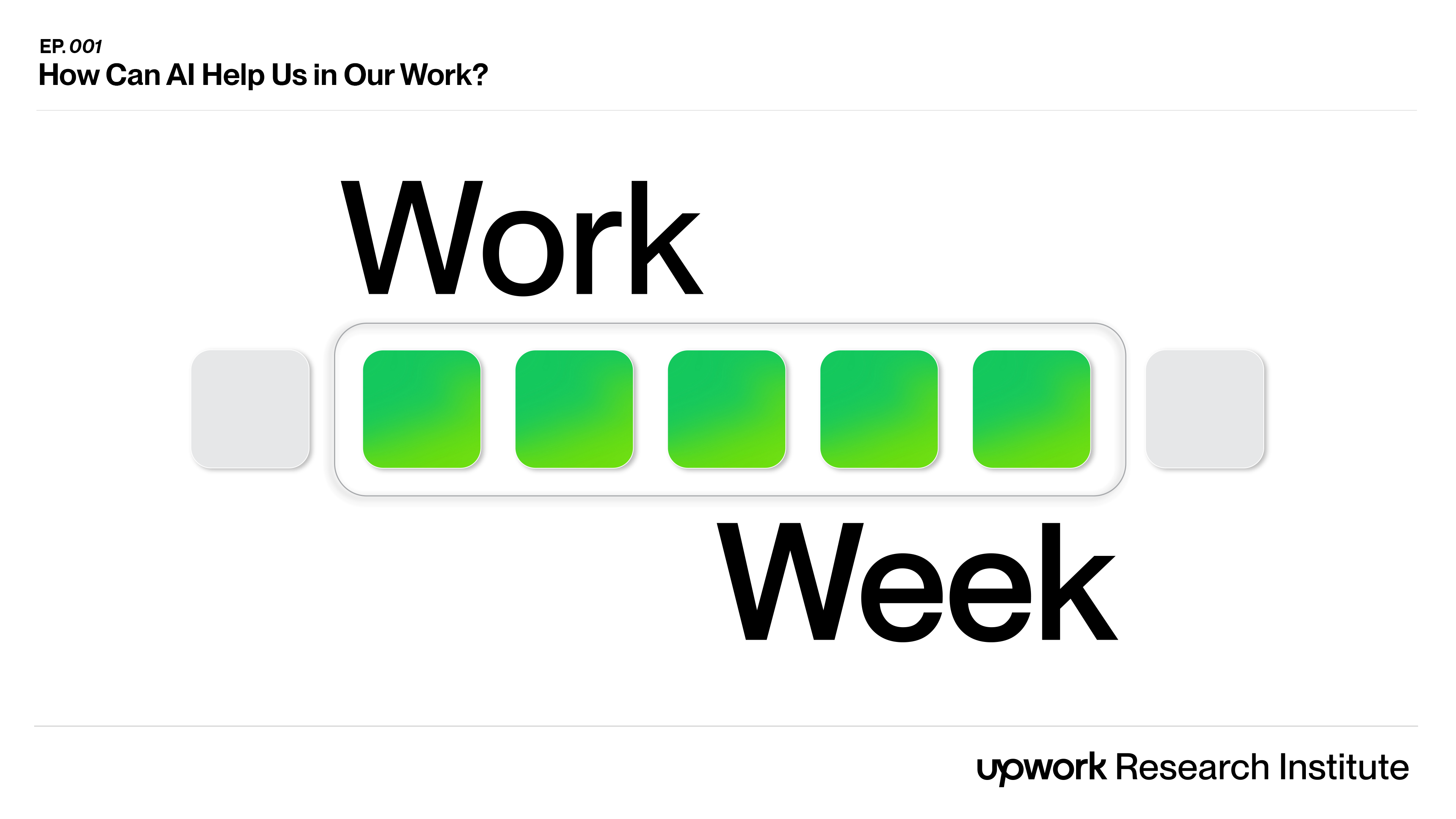
.jpg)